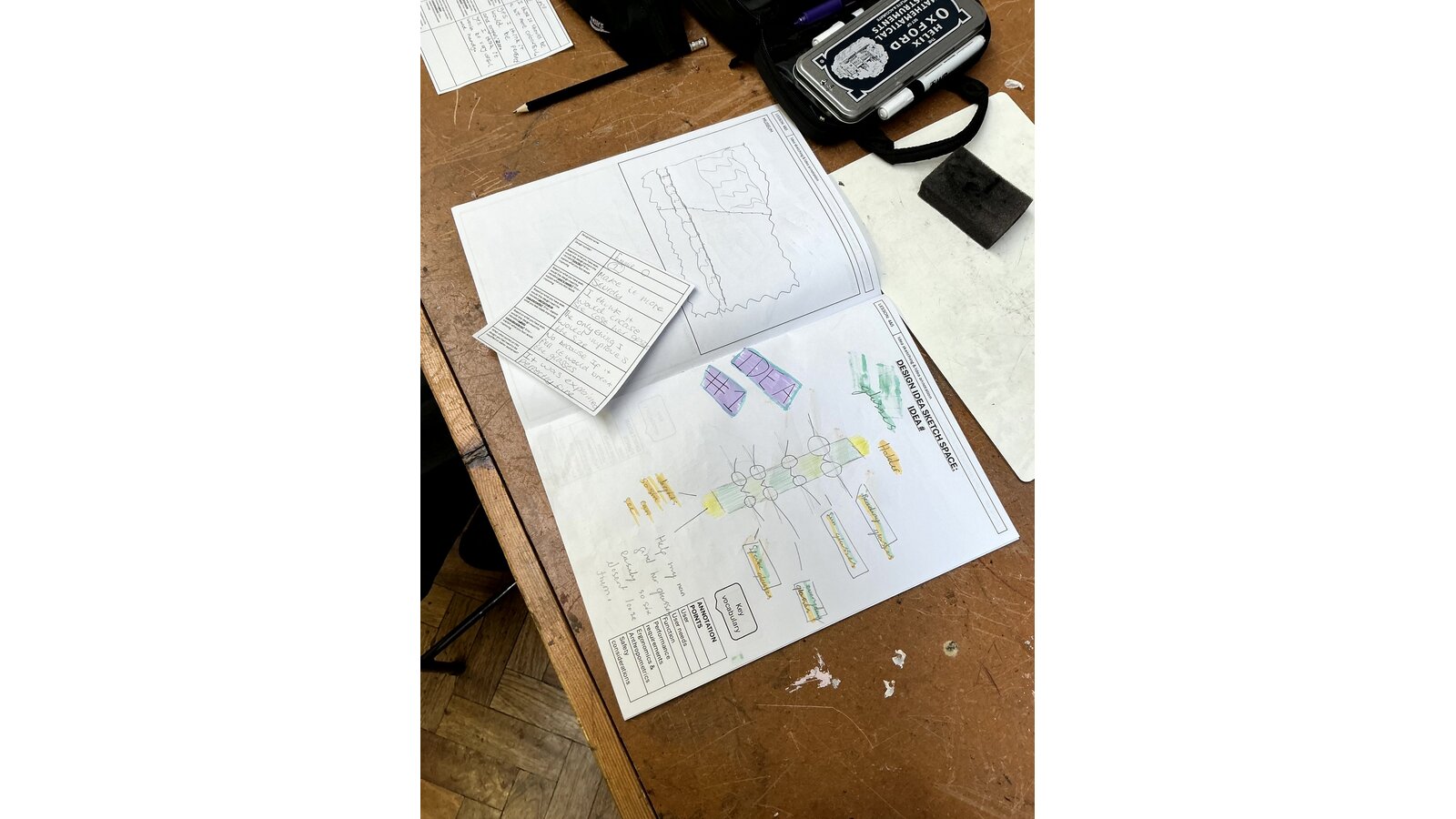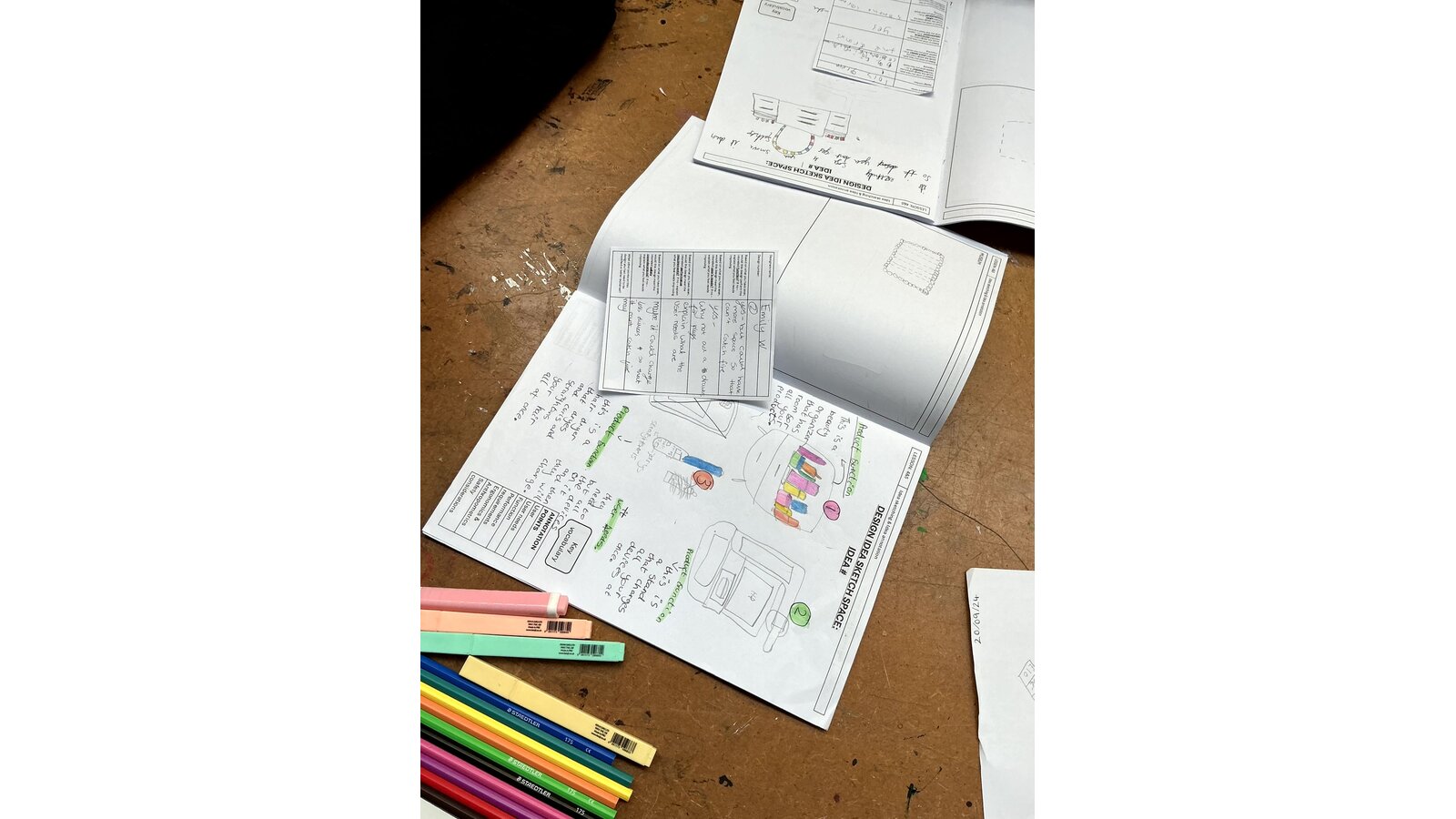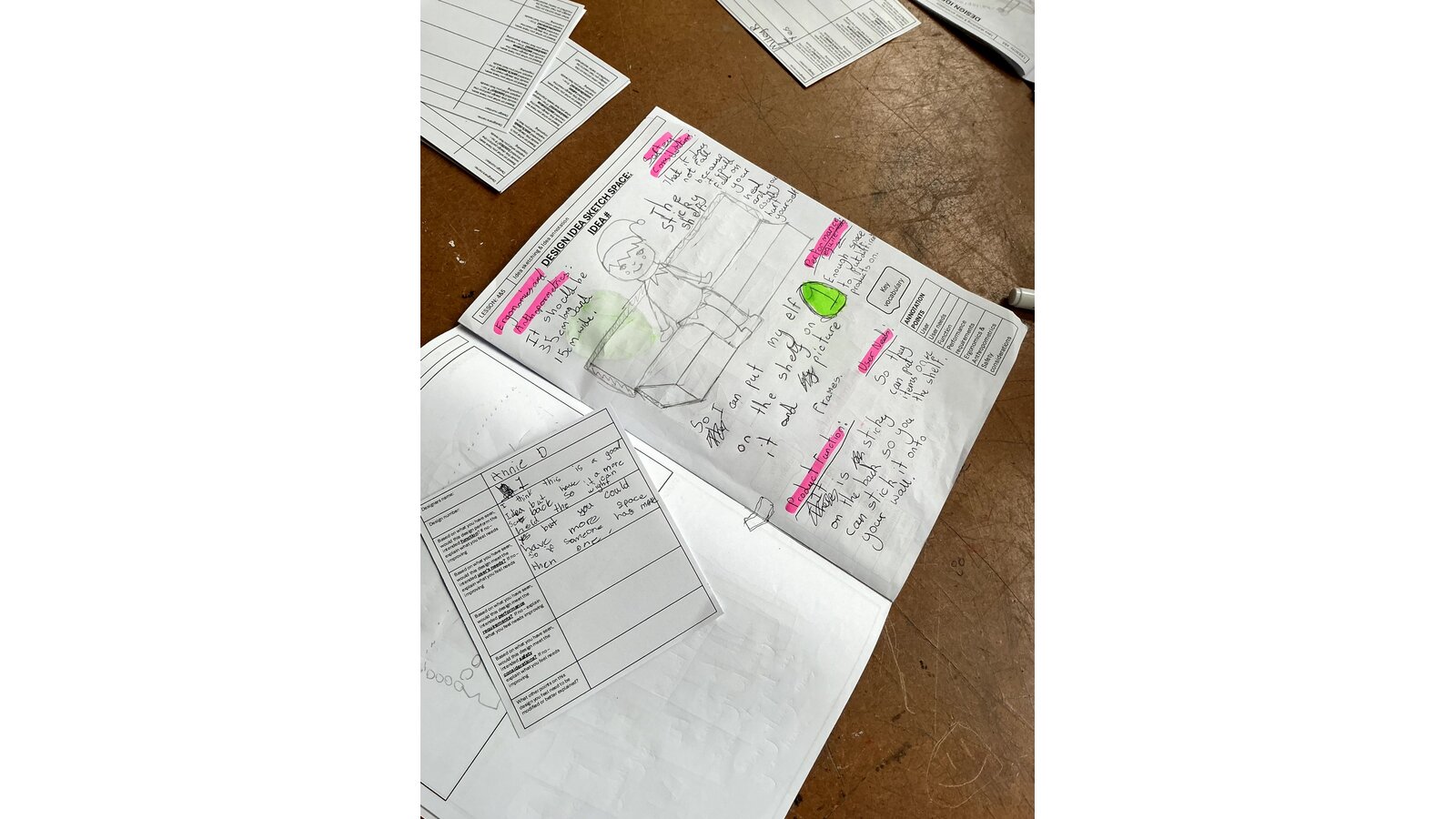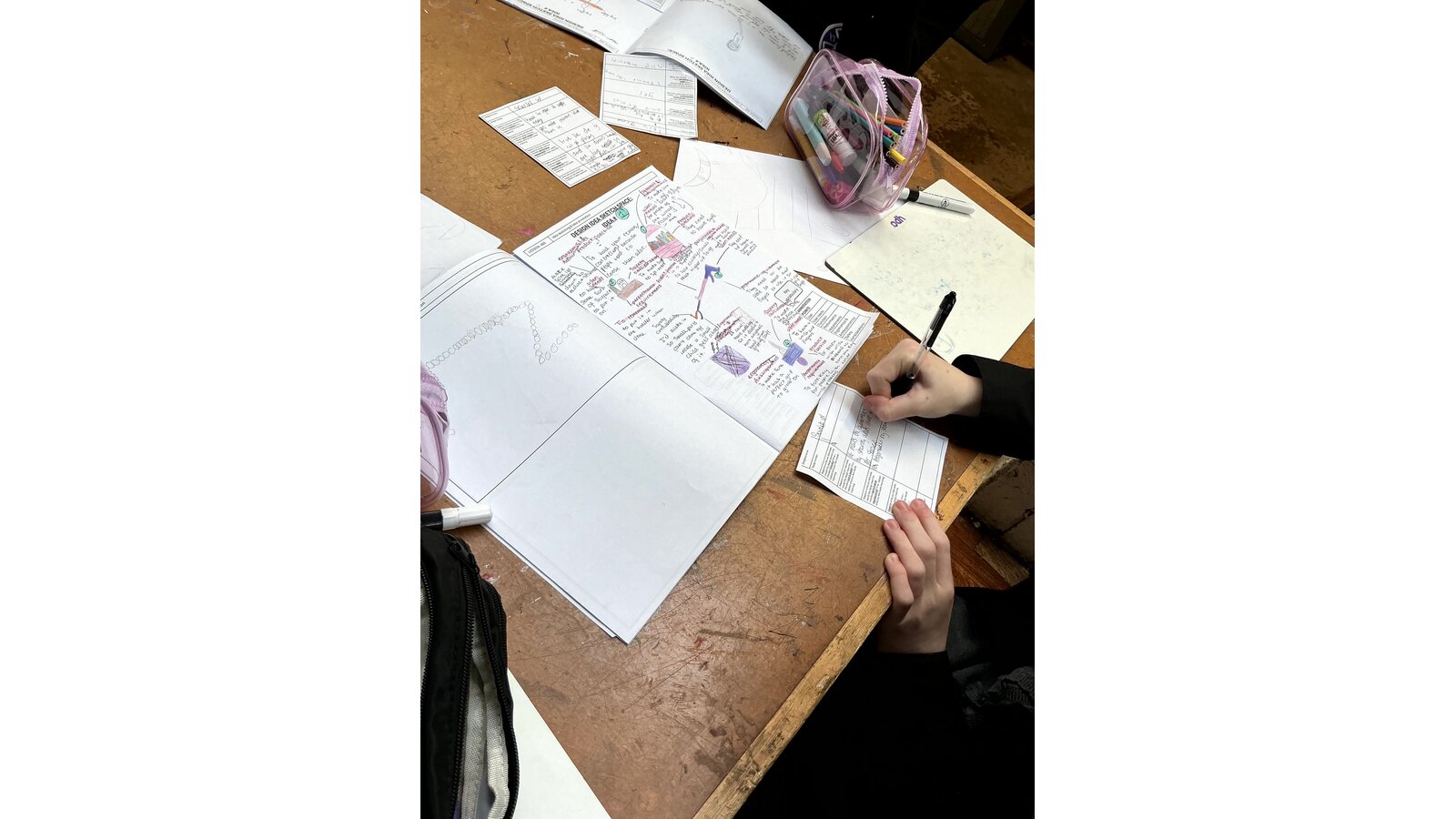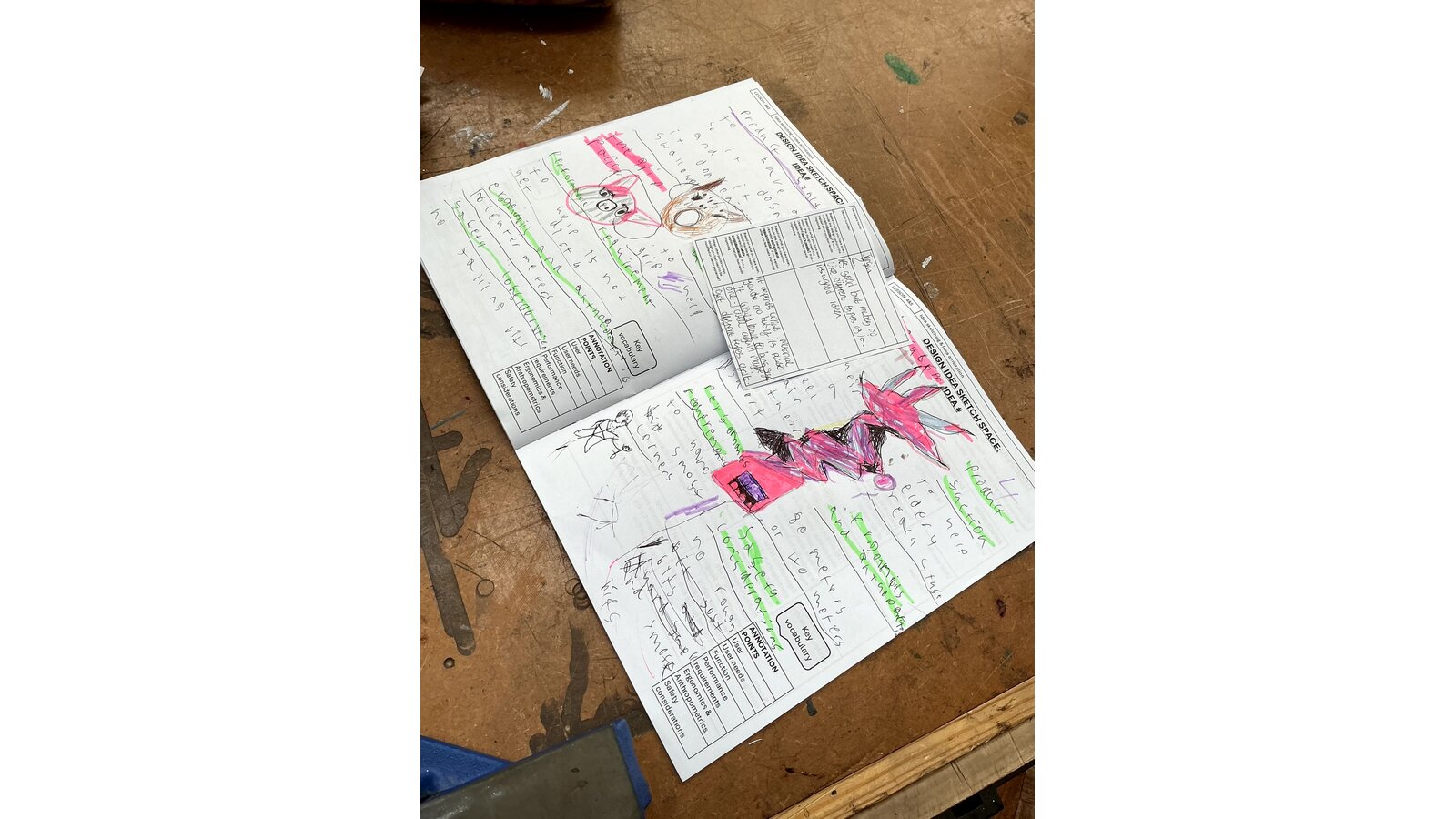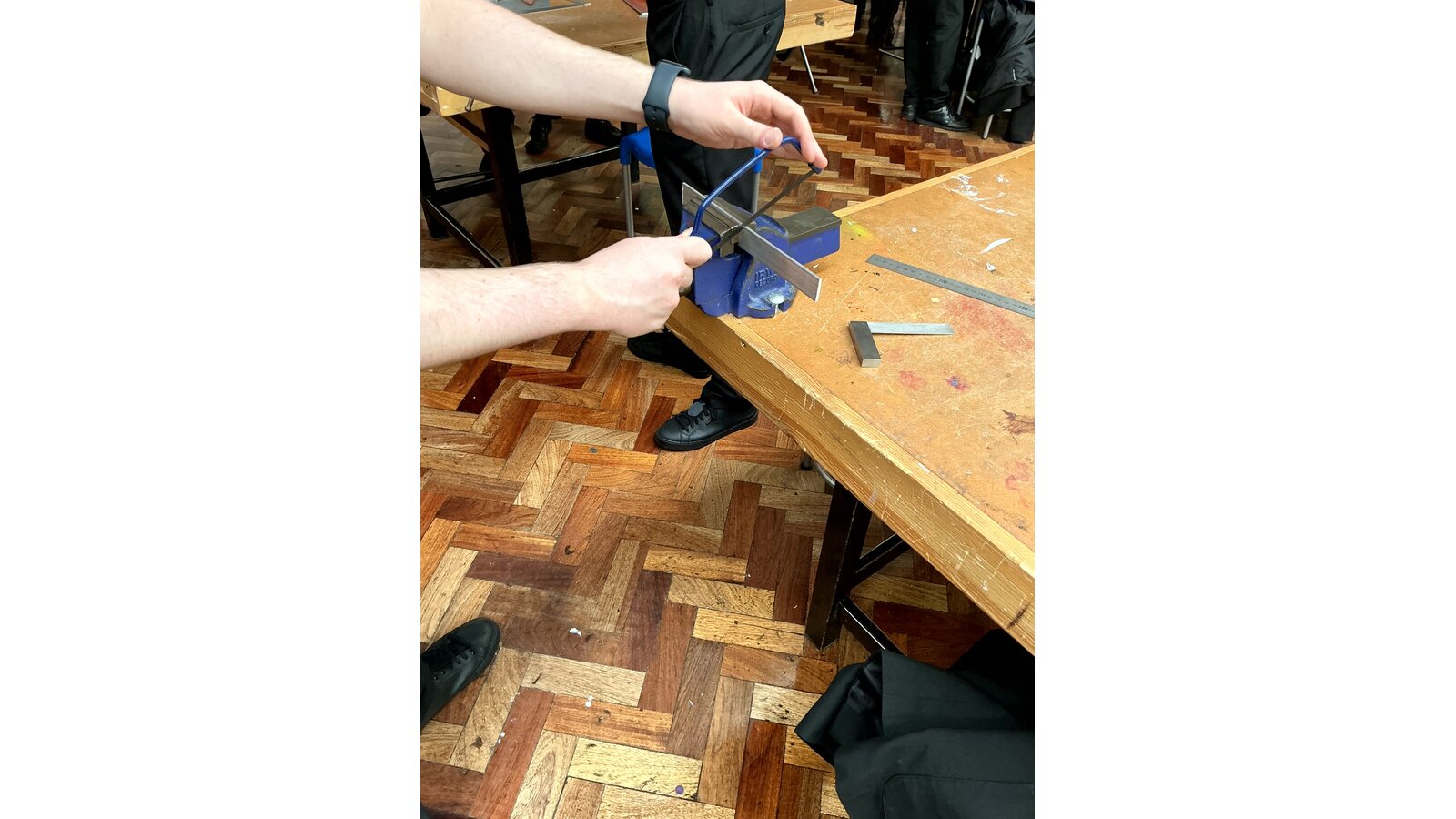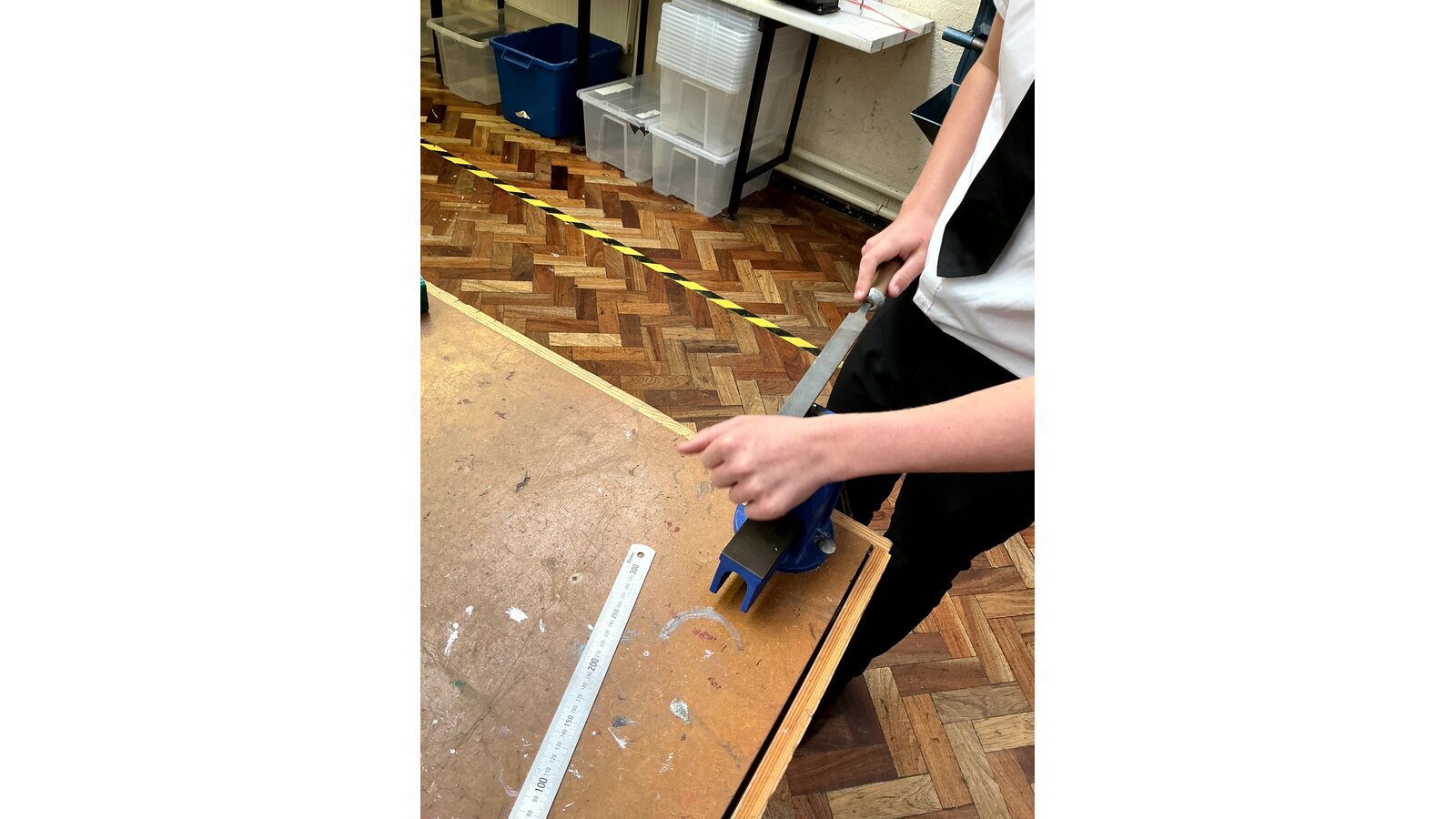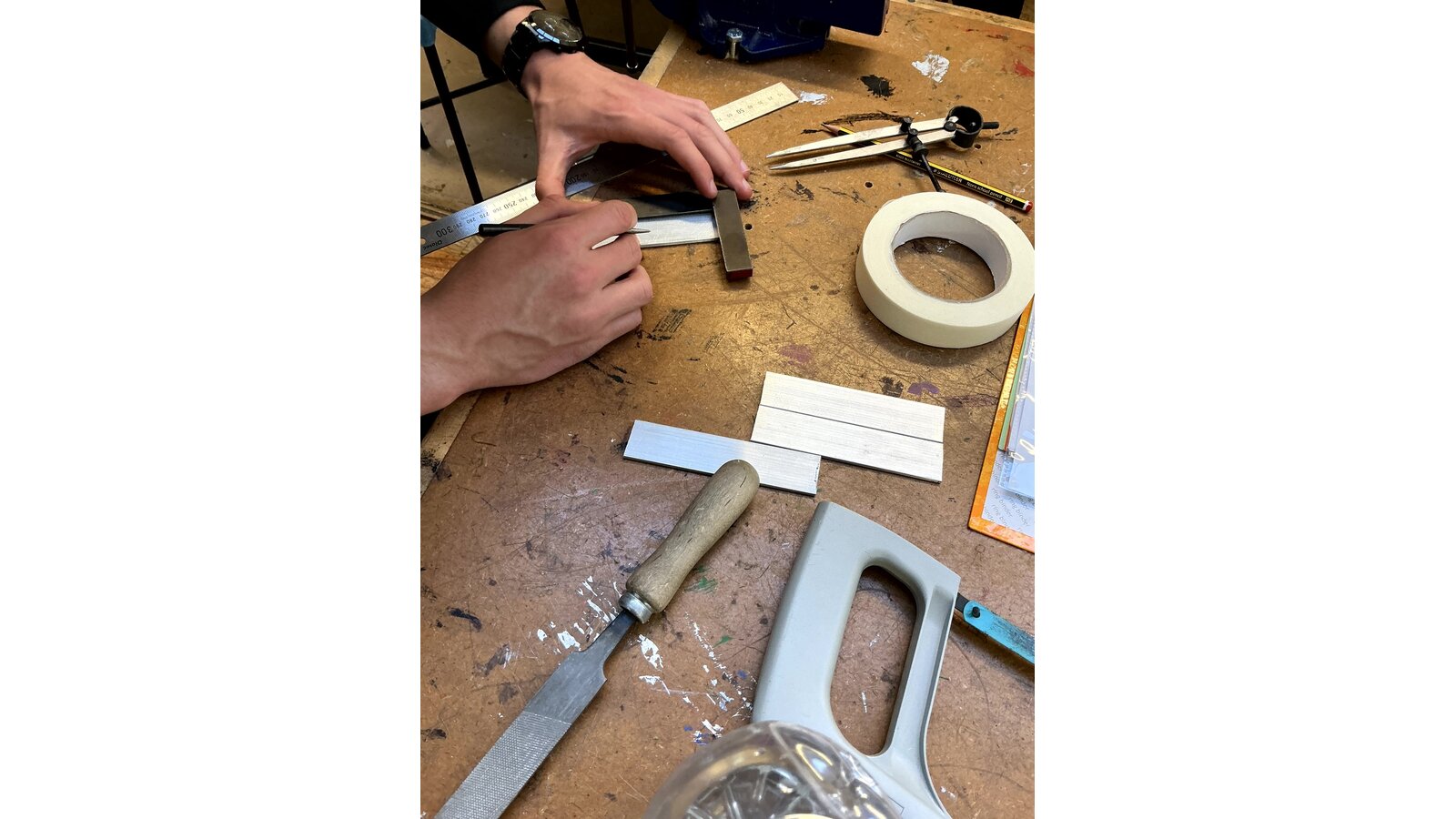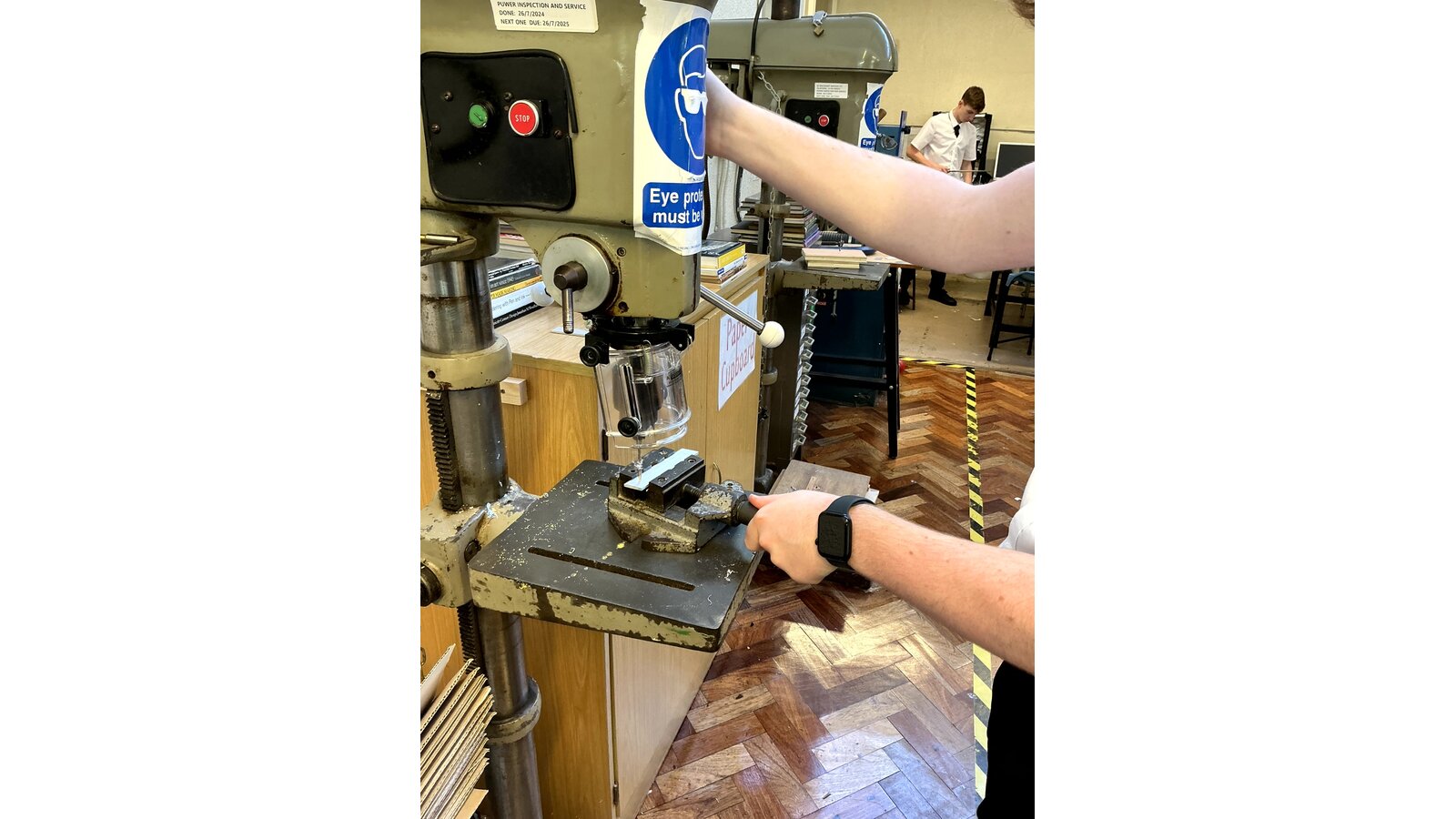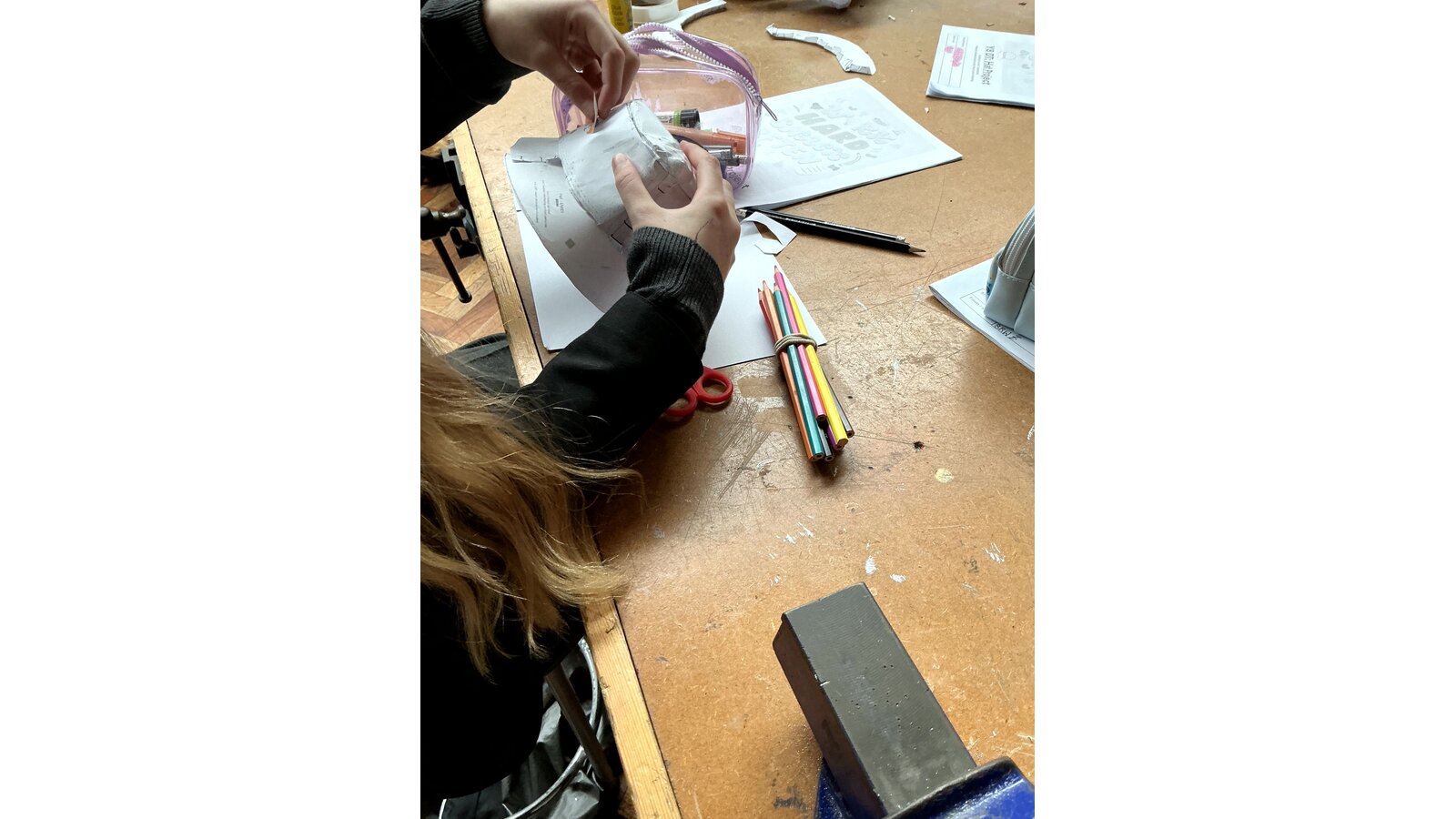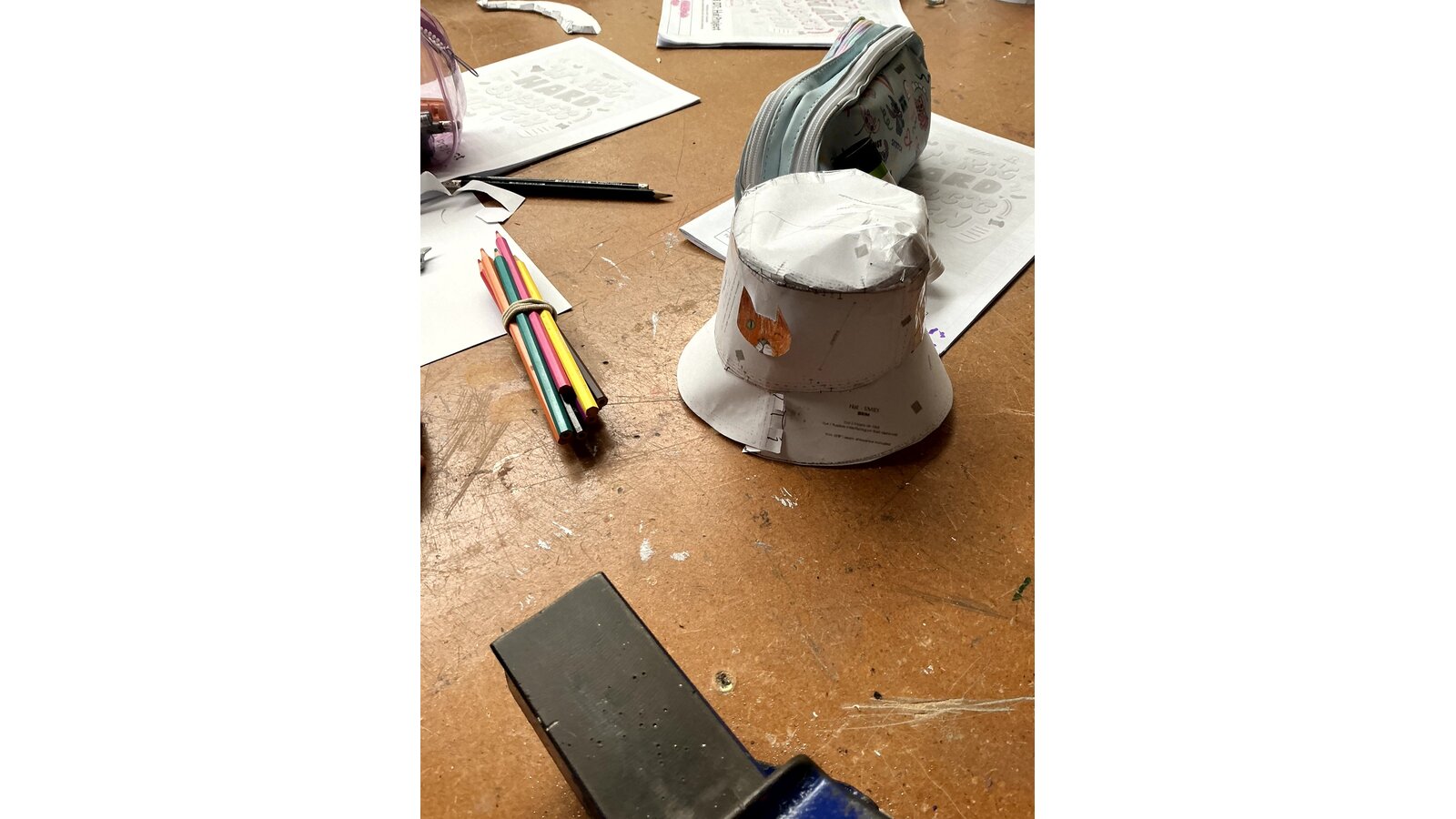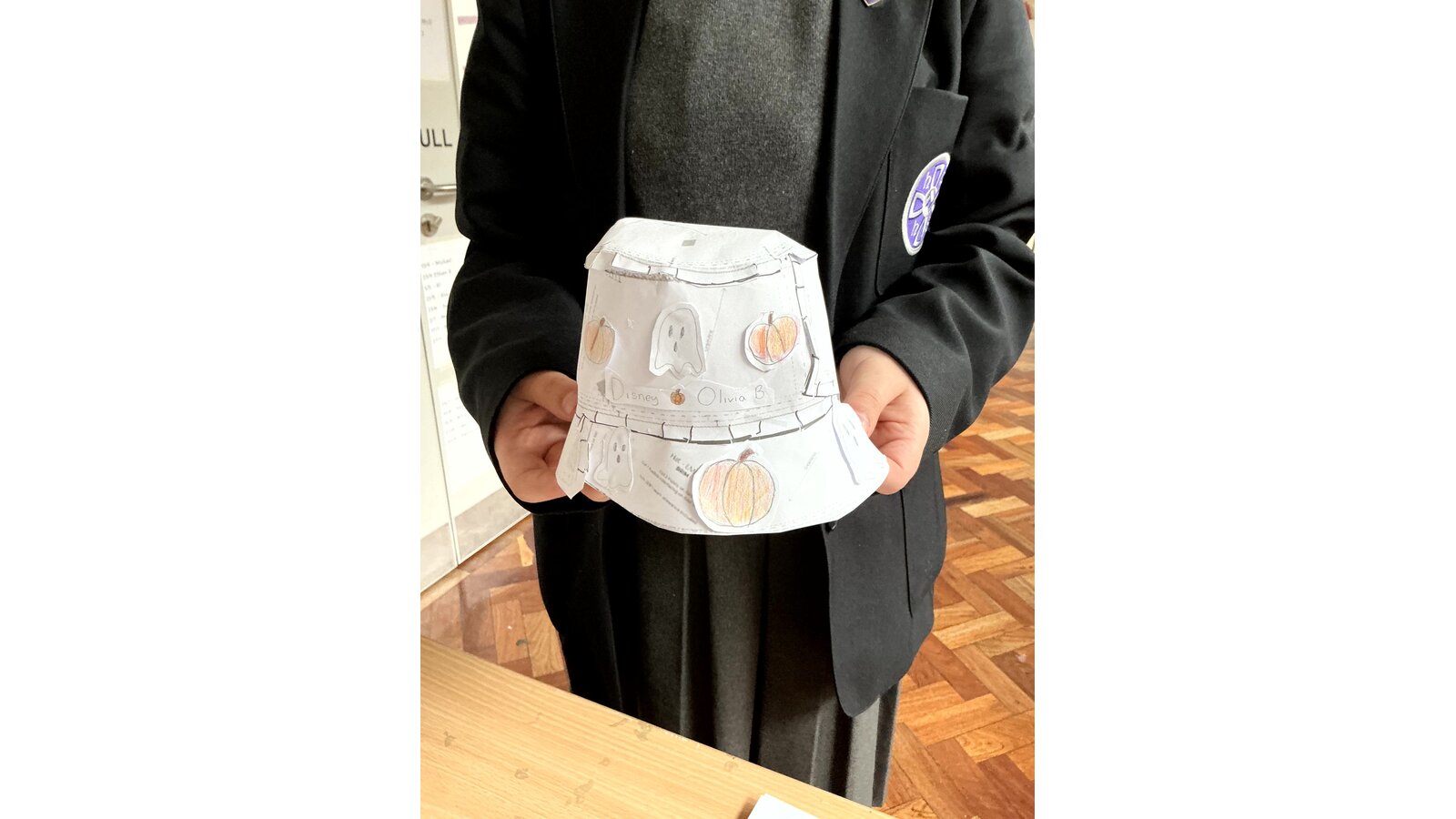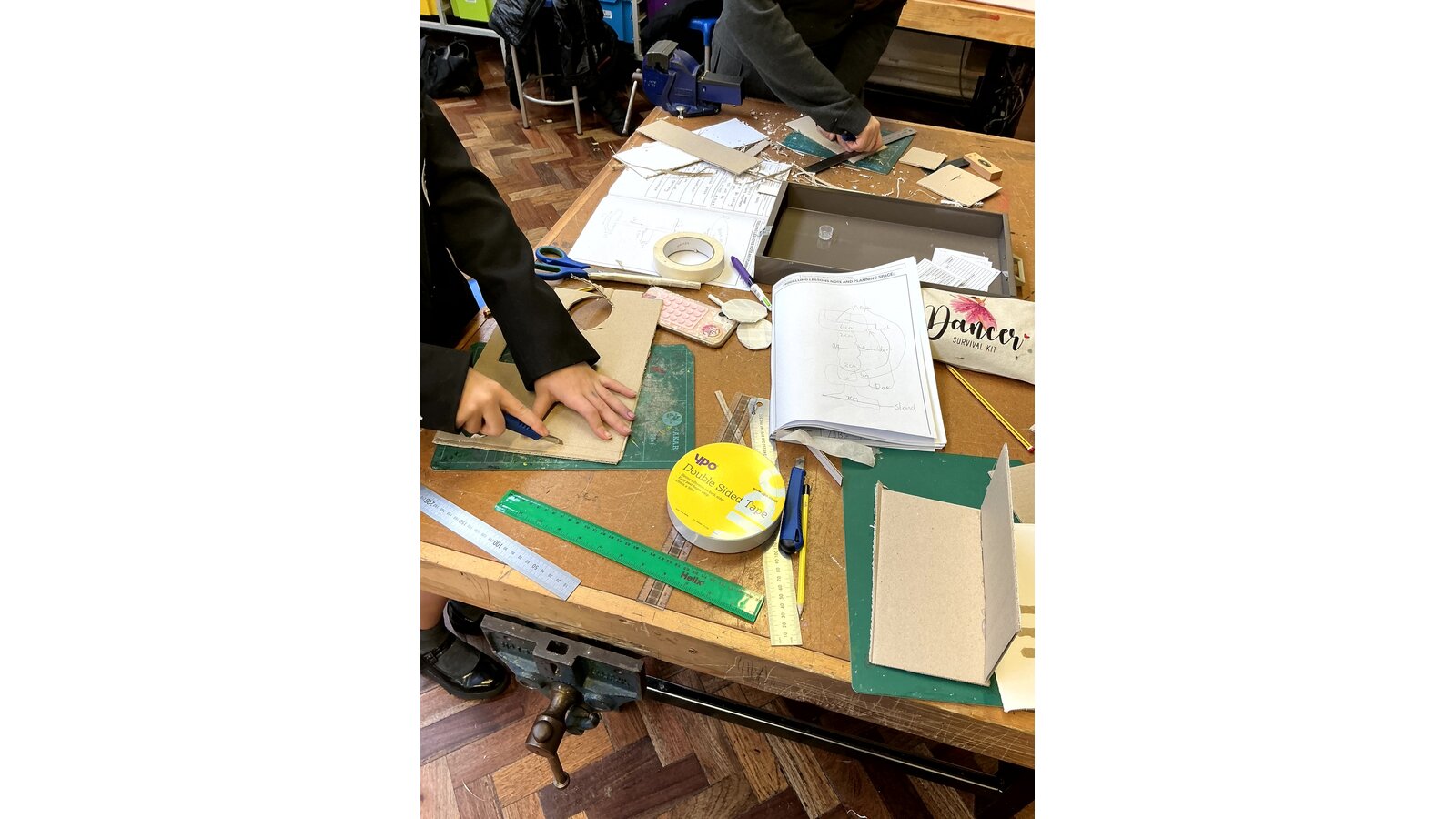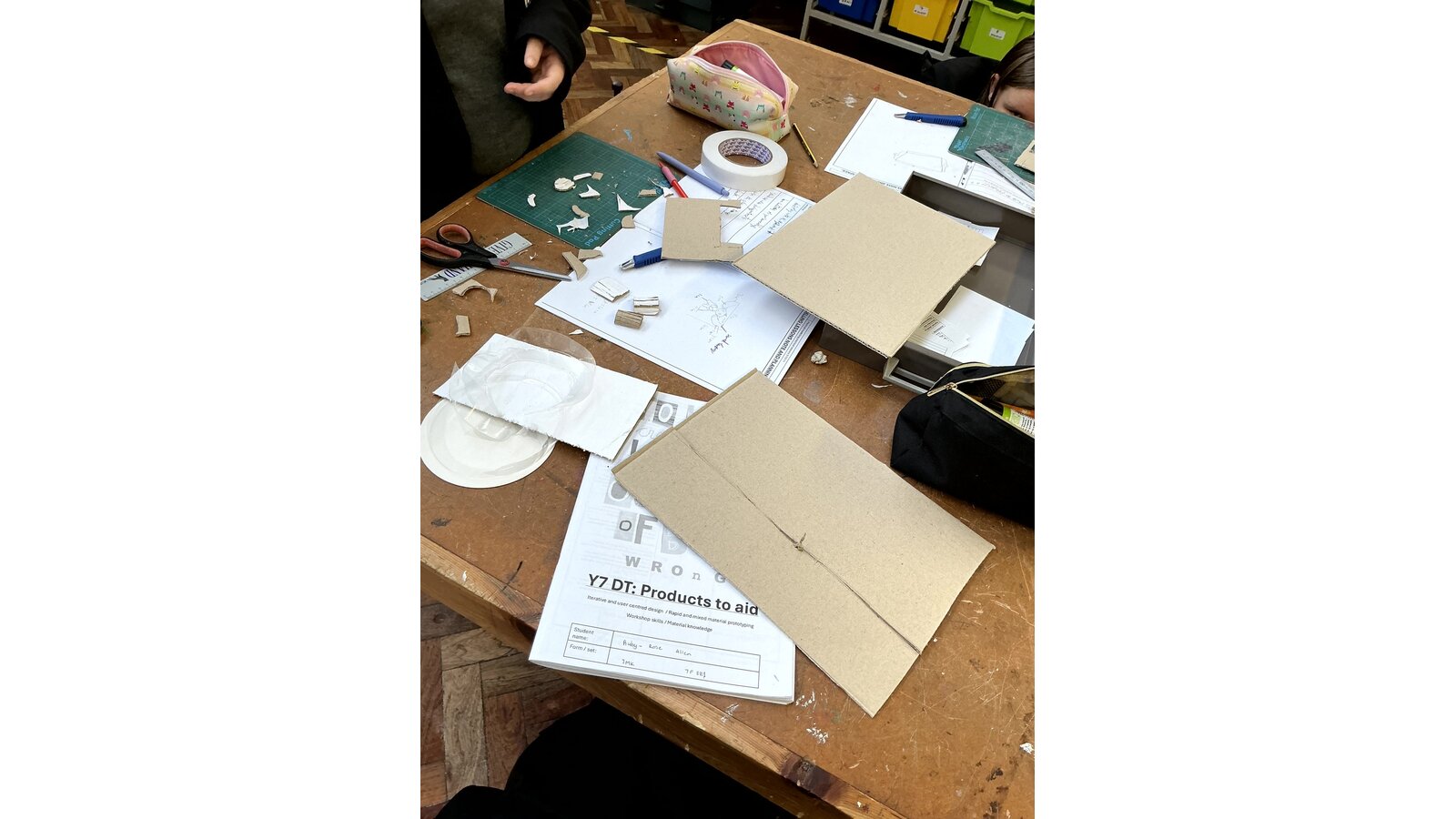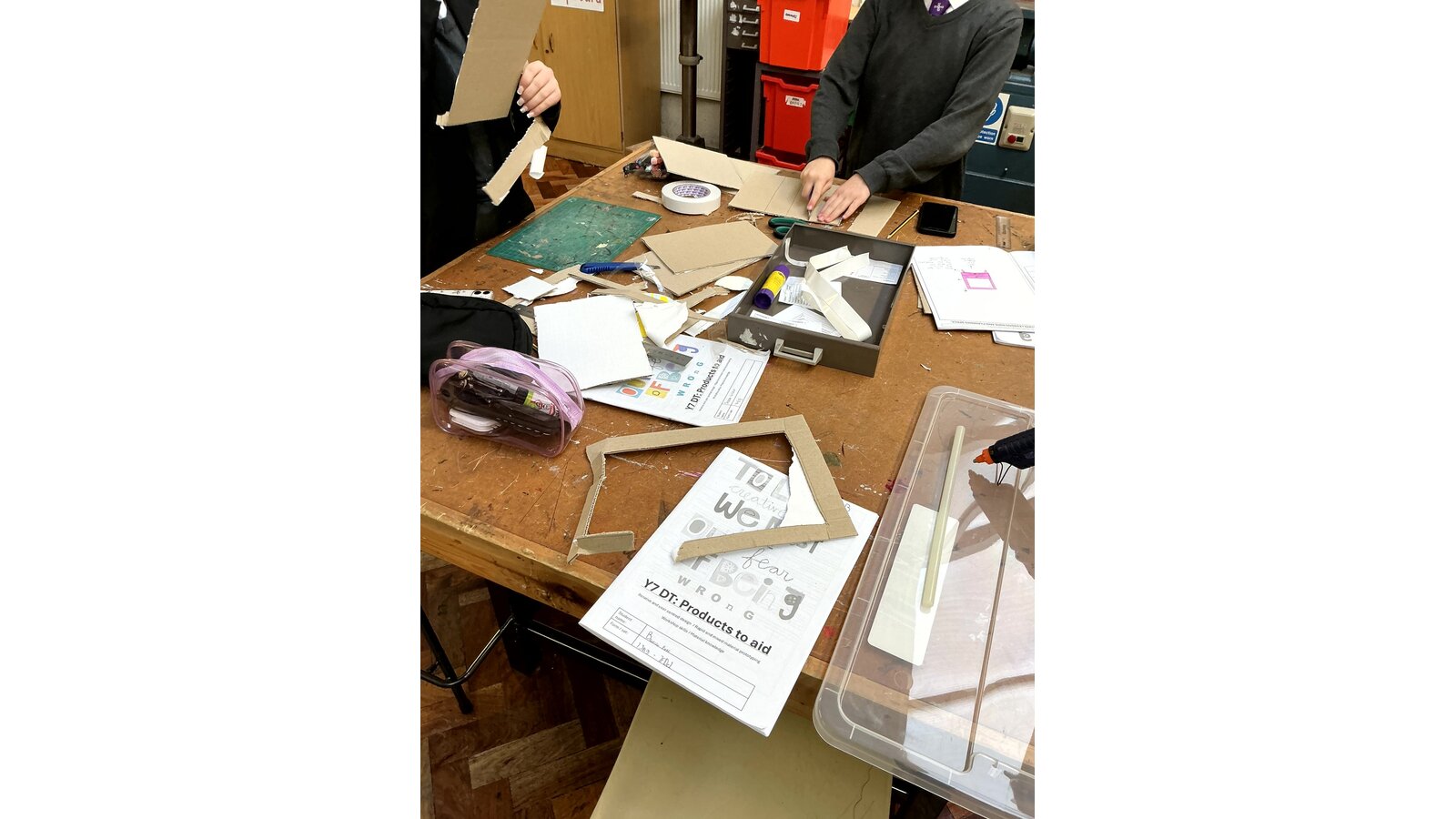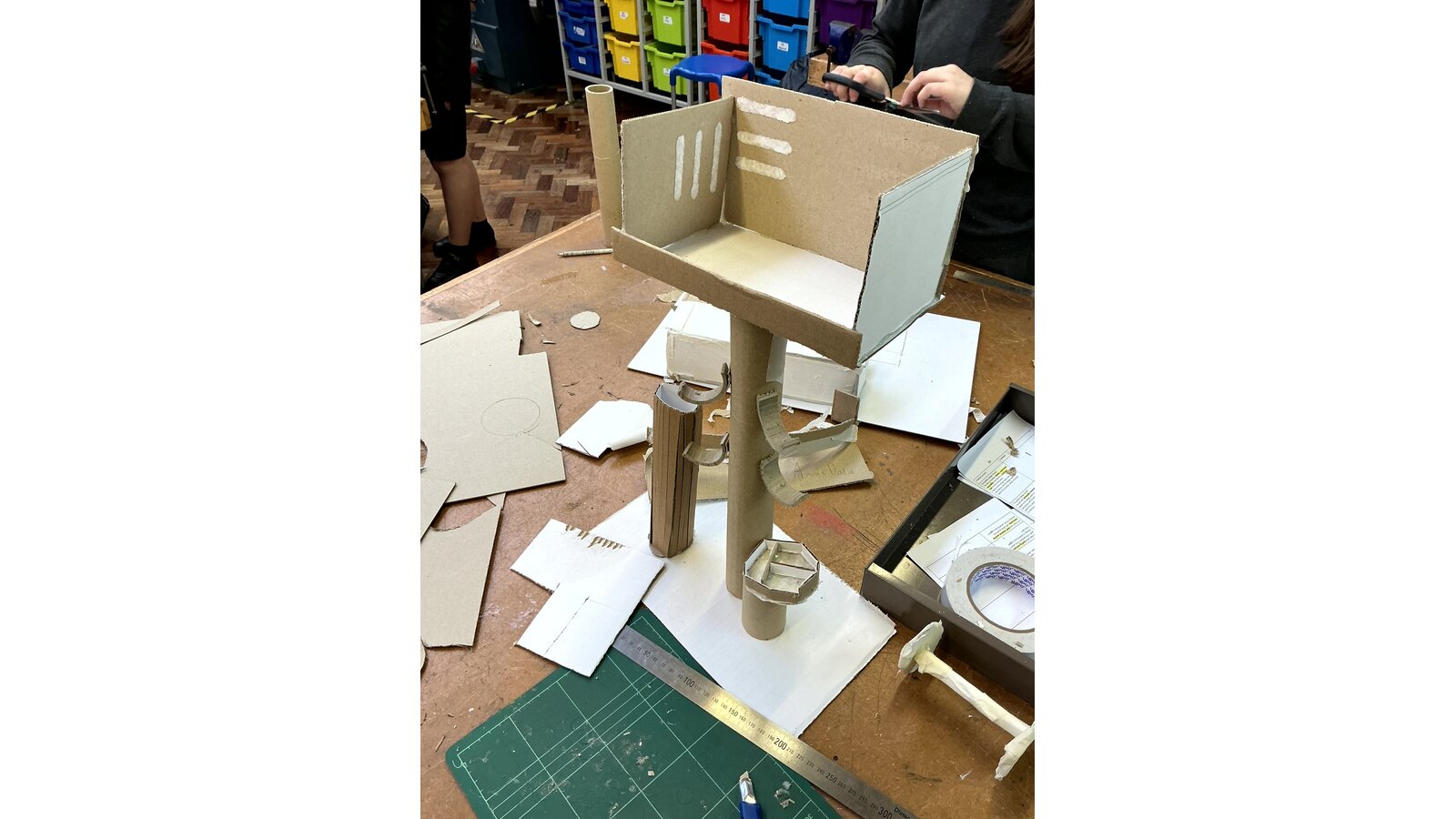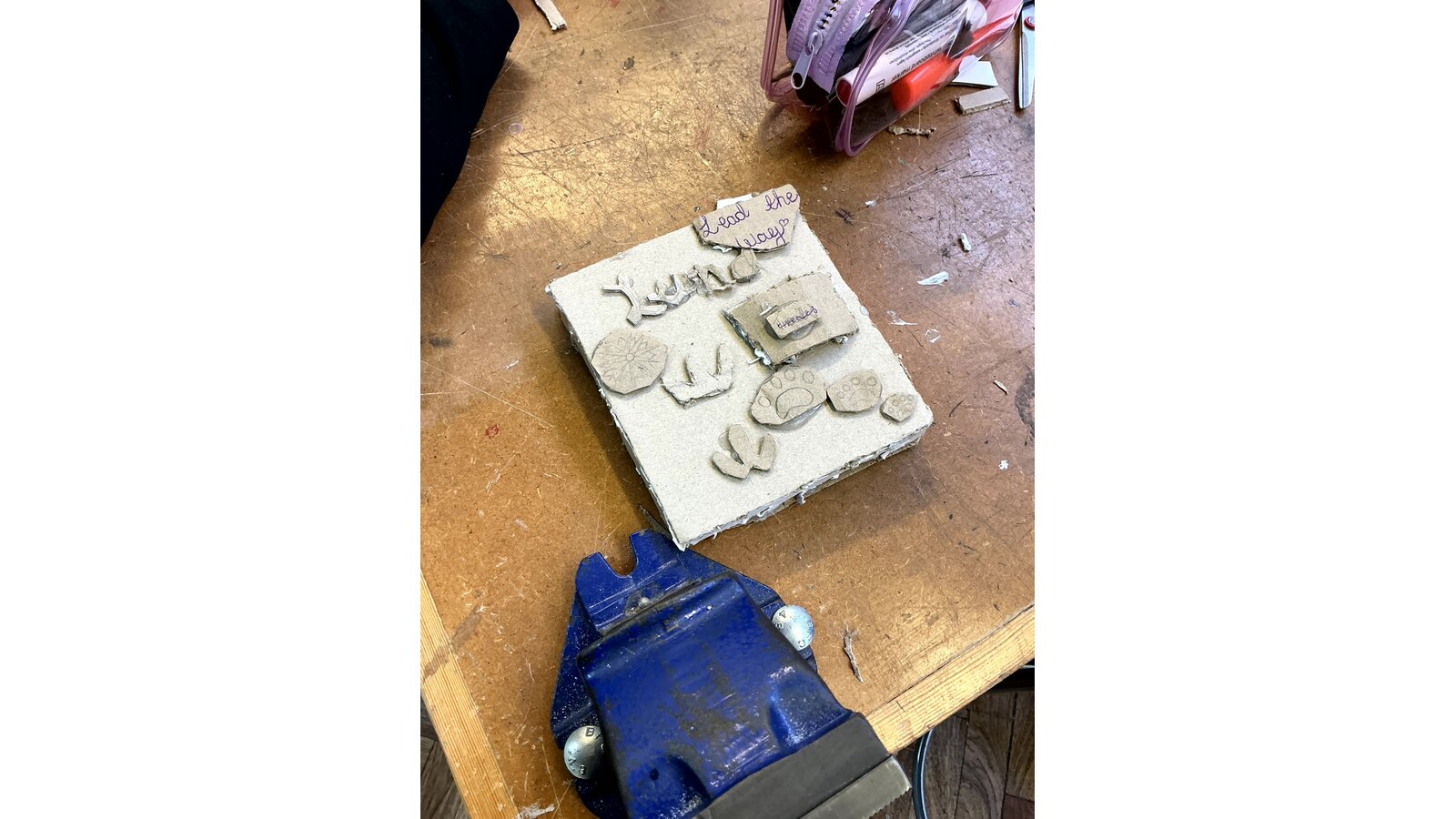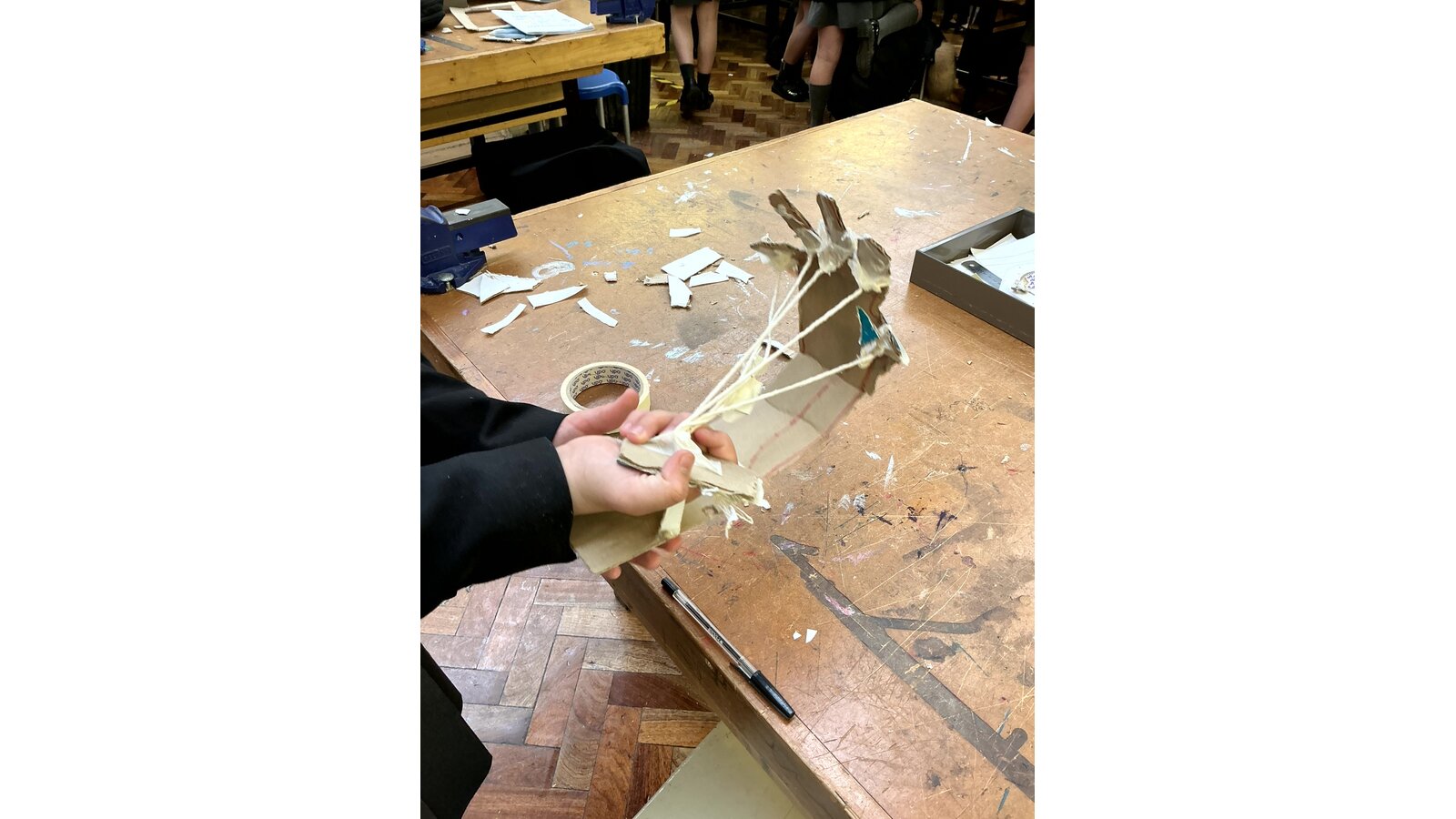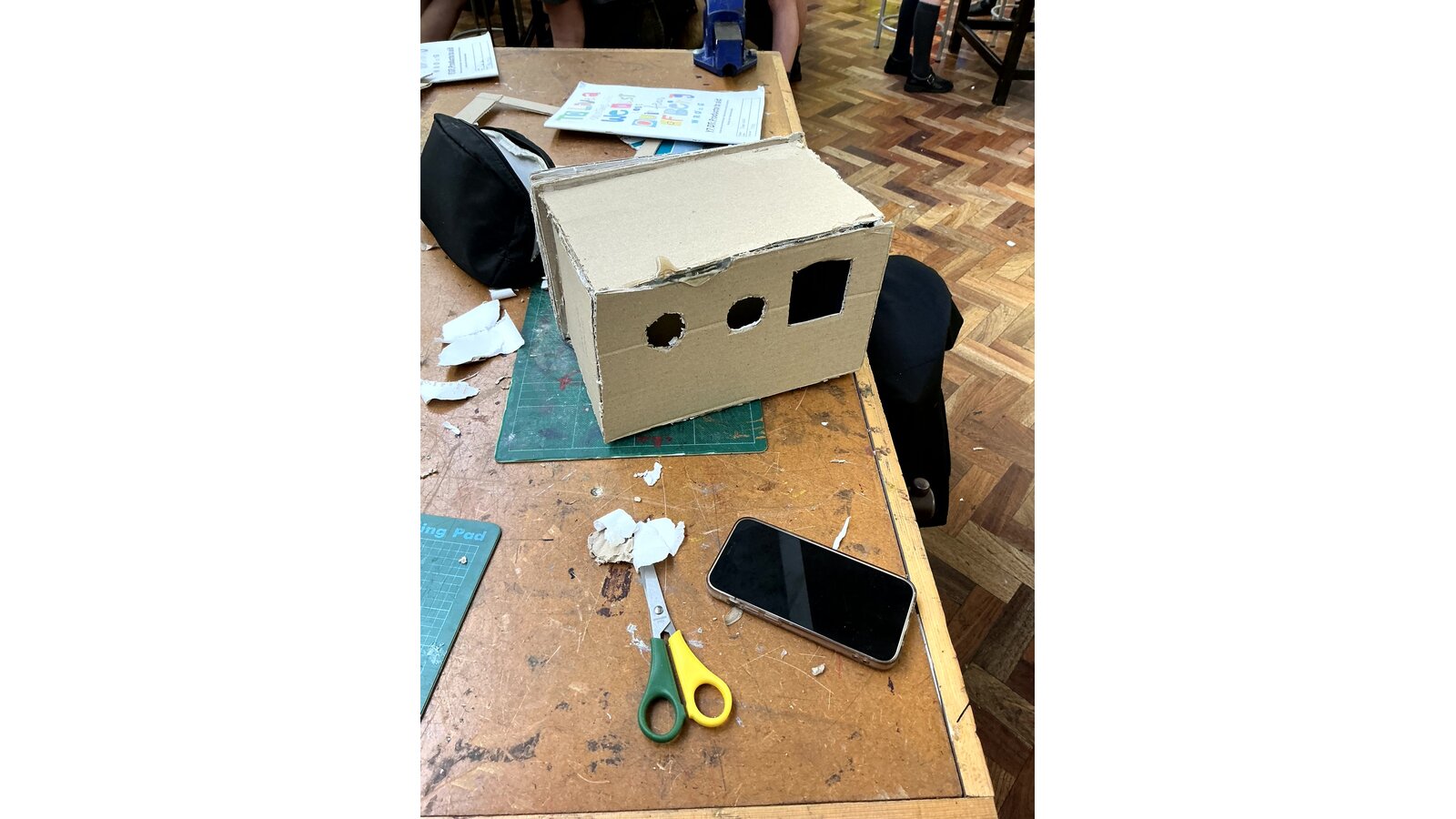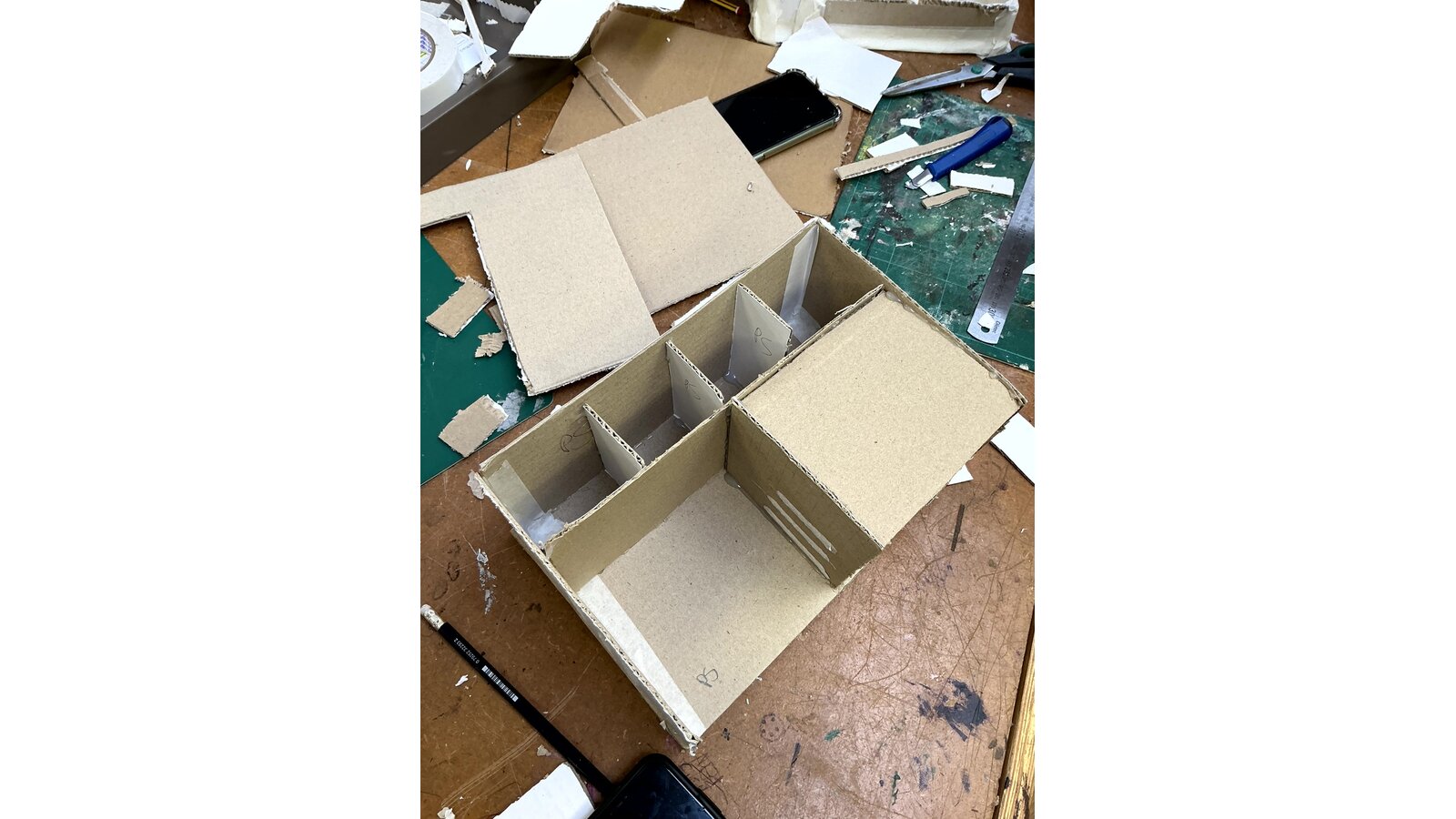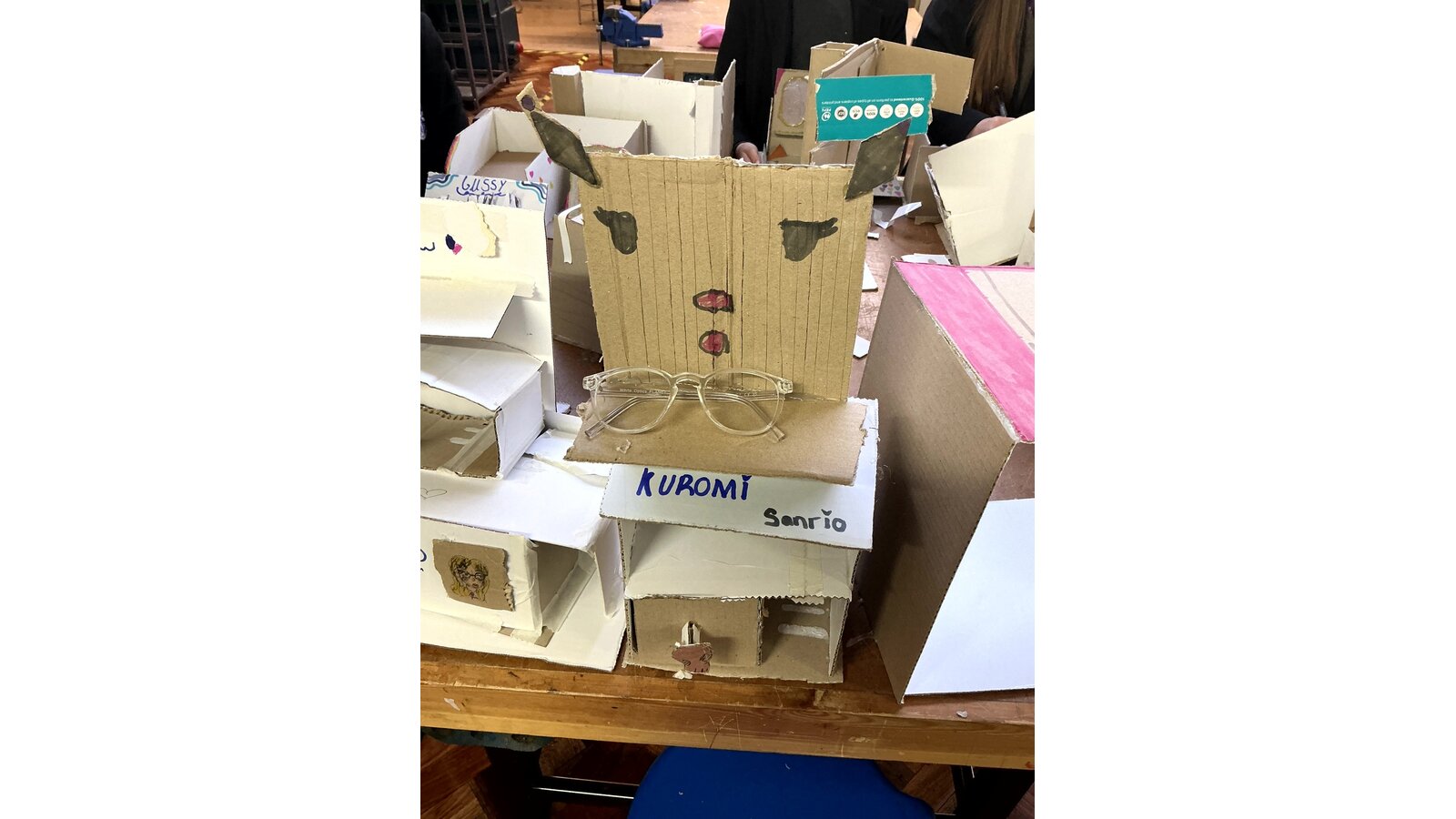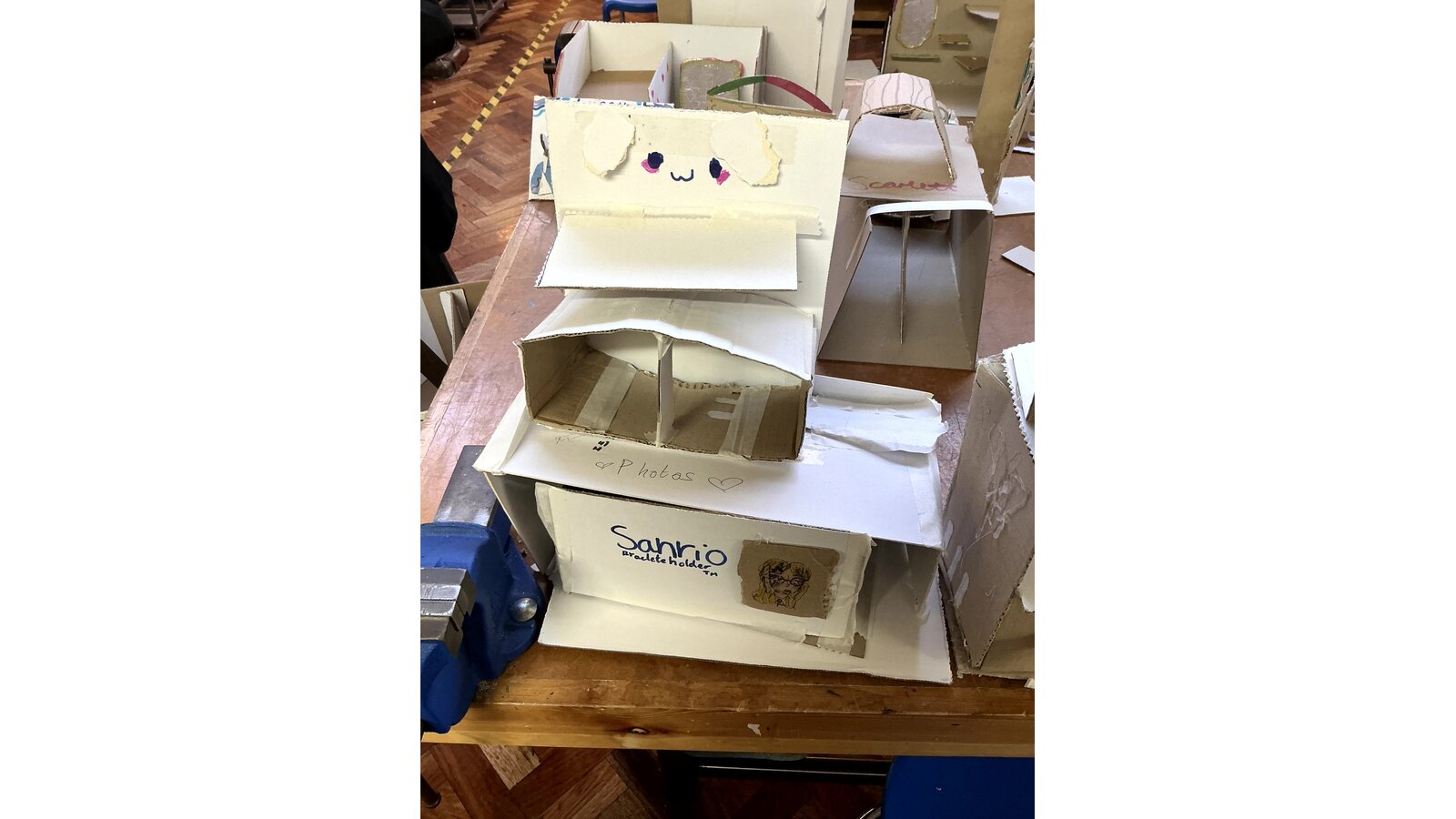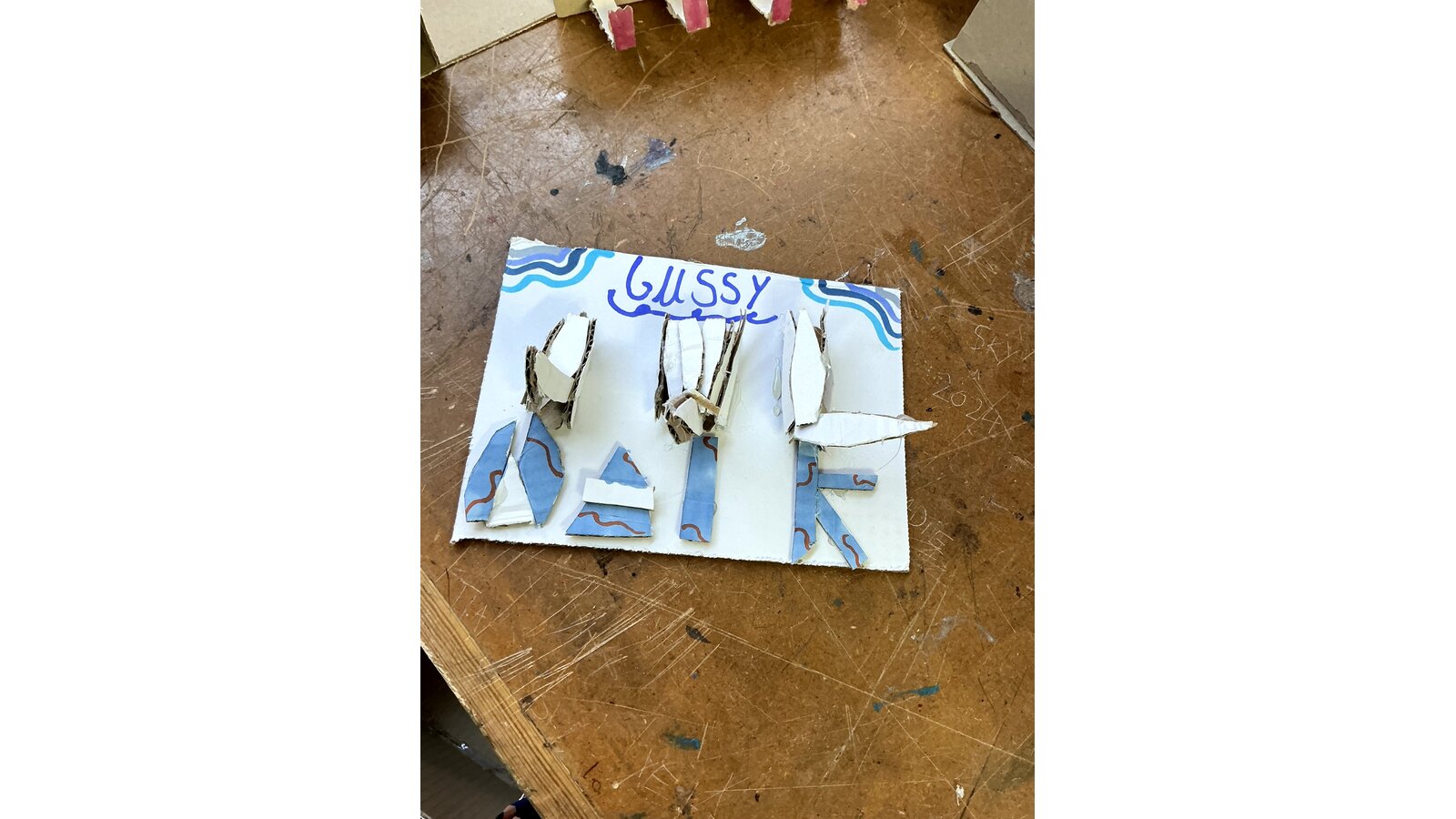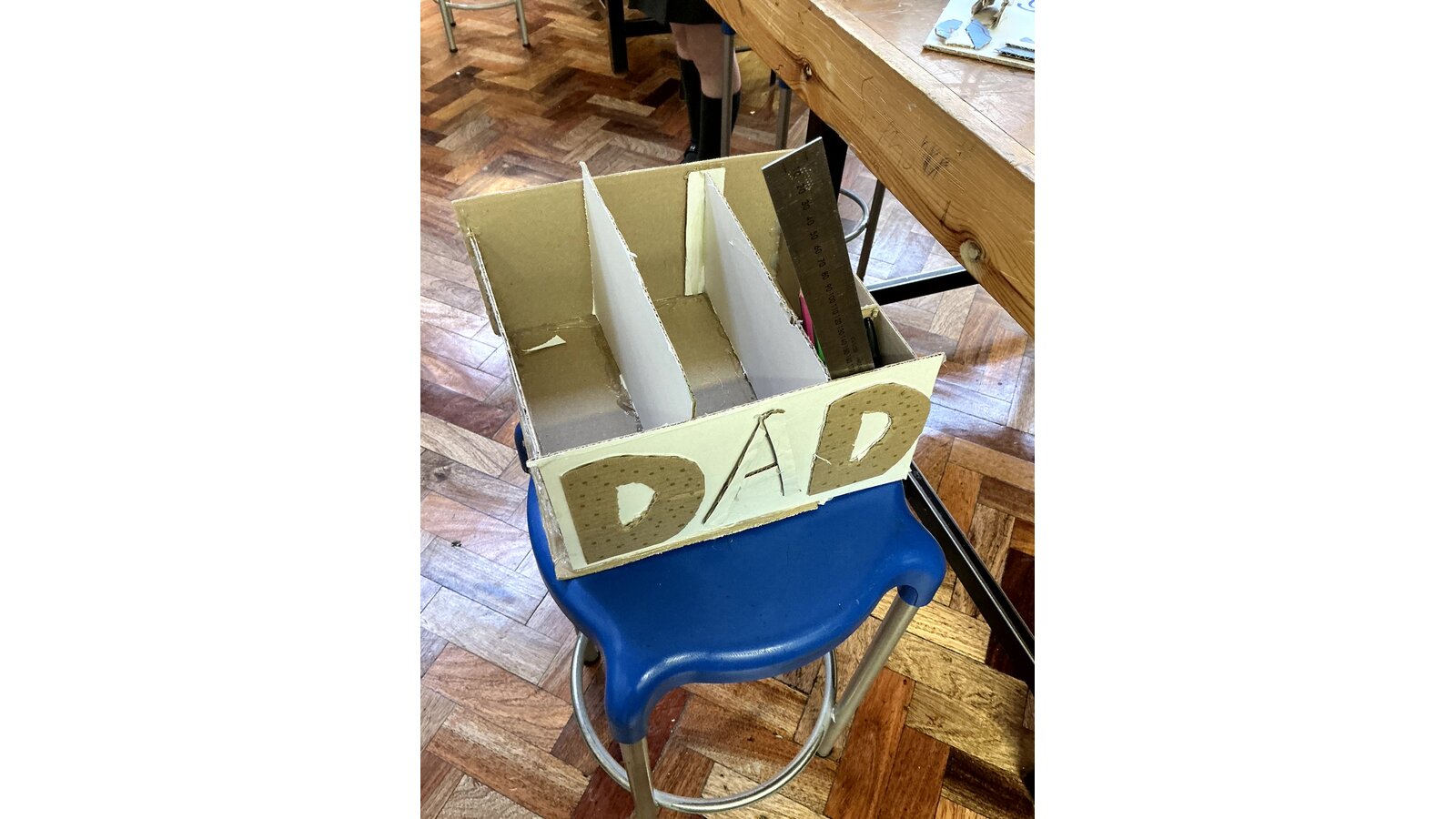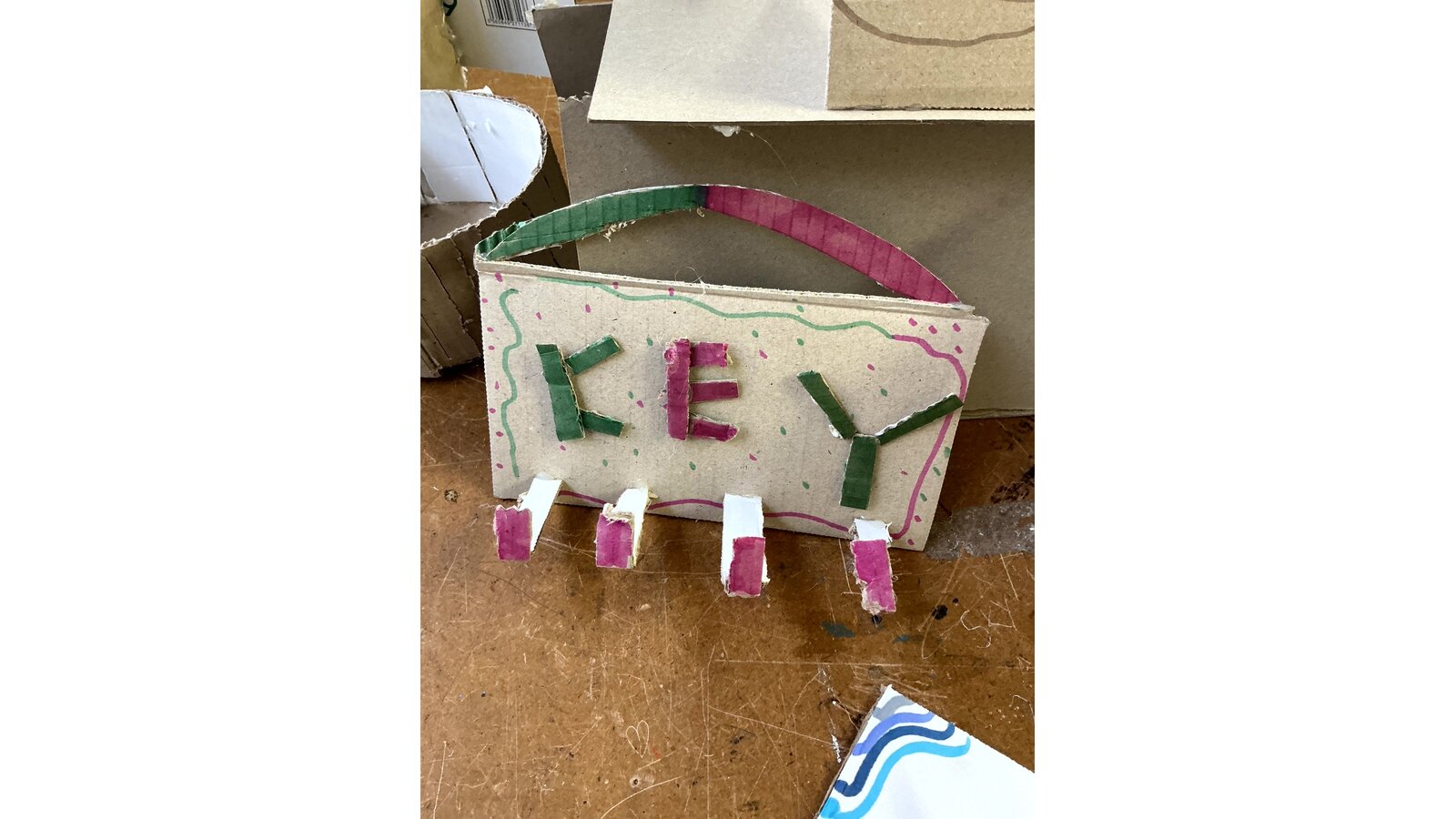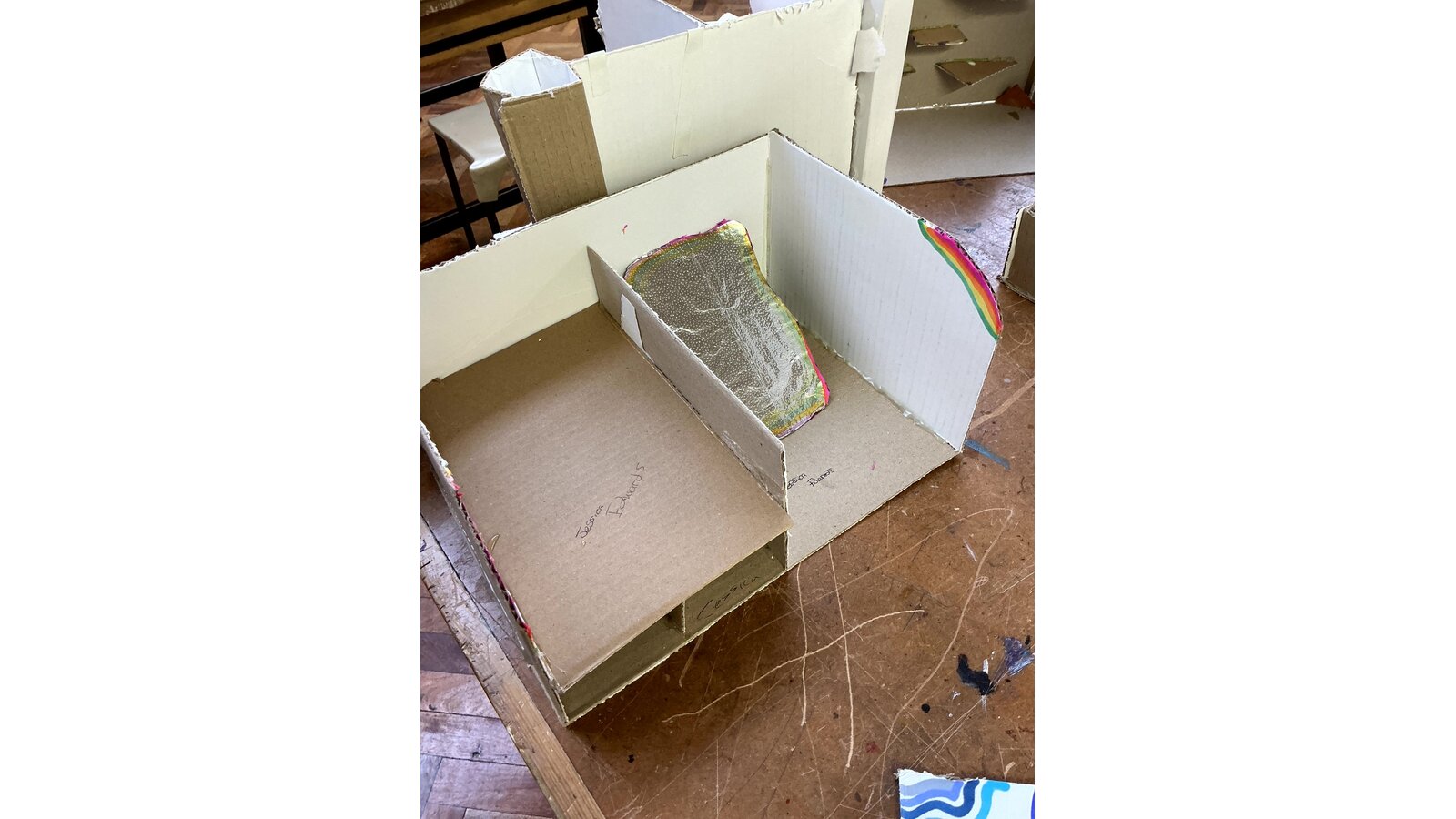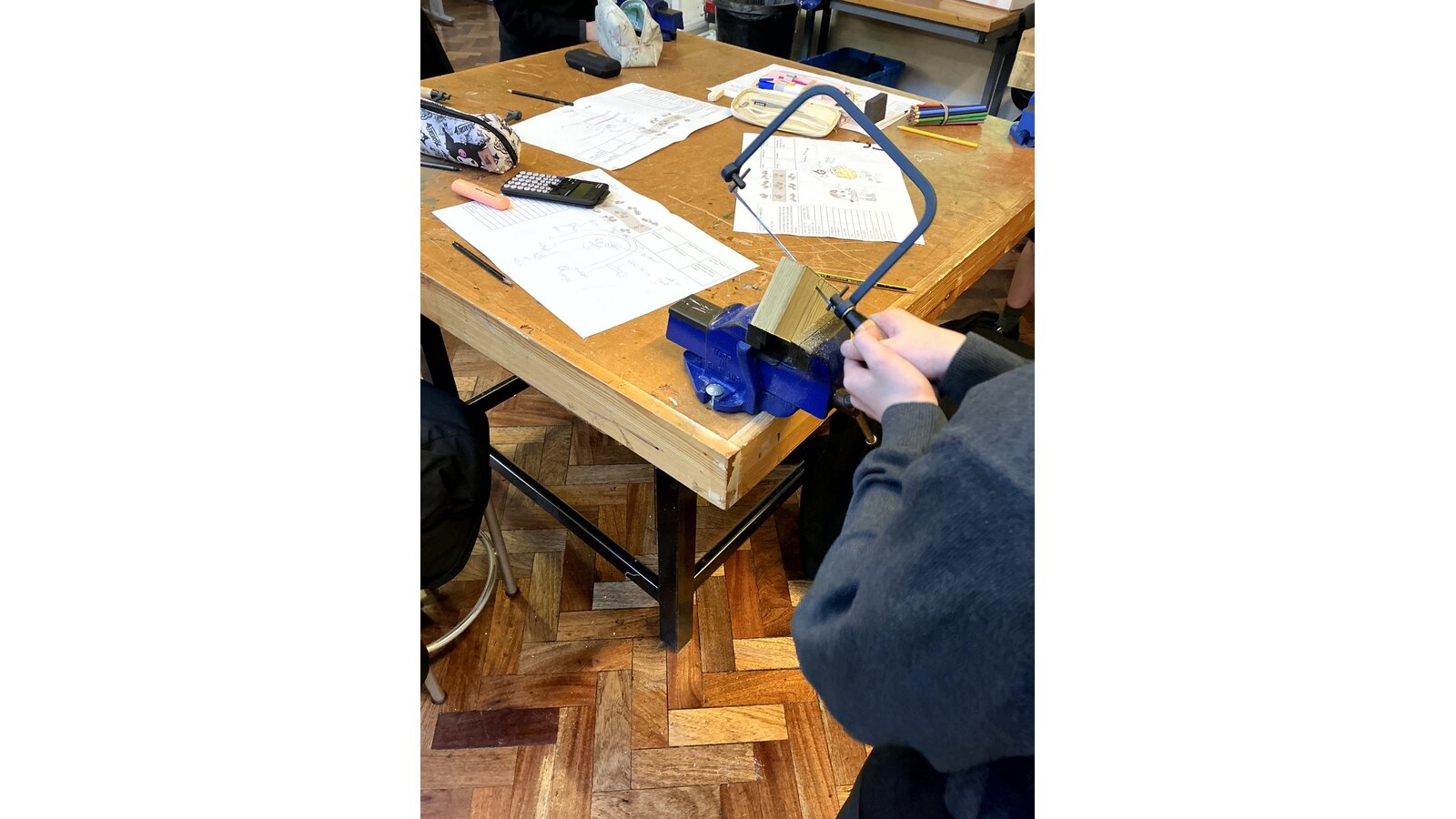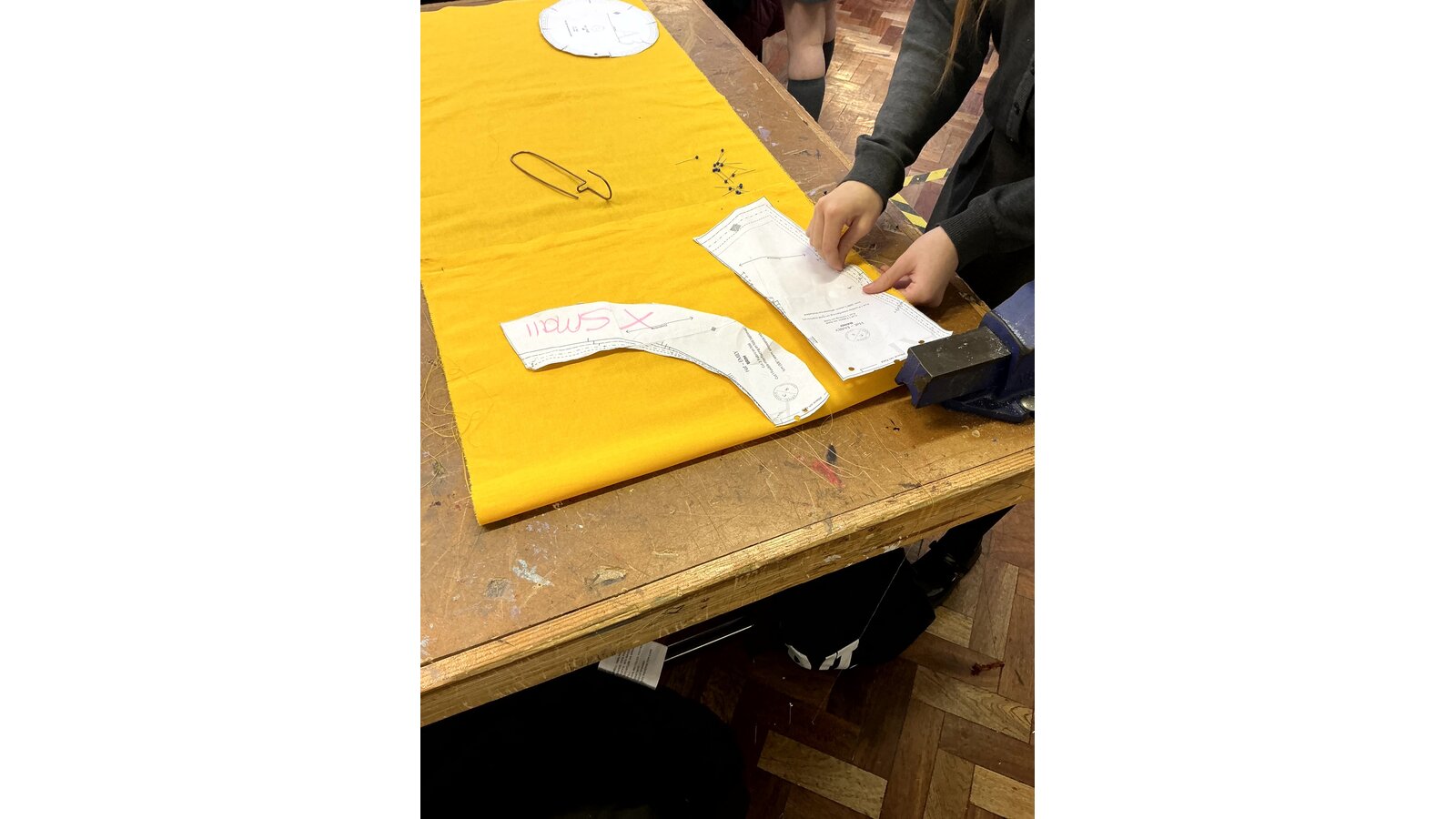Design
Head of Department - Mrs Williams
|
Welcome to the Design and Technology Department |
At Holy Family we believe that every student has a right to a broad, balanced, and rich curriculum that prepares them to take their place in a complex and fast-moving world confidently.
Over the decades Design technology has evolved based on the changes in the world we live in and skill shortages within the country. These adaptations are reflected in the national curriculum framework set by the government.
At Holy Family we take heed from the latest developments and subject reports. While students will produce outcomes in Design technology, the focus of projects is far more about developing skills and mindsets for future careers: problem solving, creativity, analytical thinking, grit, presentation skill engaging engage head, hand, and heart in all briefs given rather than simply making ‘stuff’ in the workshop.
Design and technology association have reported the below needs from industry for the 2030 workforce:
- 74% of companies expect demand for cognitive and meta-cognitive skills such as critical thinking, creative thinking, and learning to learn to increase between now and 2030.
- 65% expect demand for social and emotional skills such as empathy, self-efficacy, responsibility, and collaboration to increase between now and the decade’s end.
- 83% see increases in demand for practical skills including, but not limited to, using new information and communication technology devices.
With this being said, our projects have been designed to give students the opportunity to explore multiple subject areas but also demonstrate and develop the skills required within the workforce.
- Our Year 7 project requires students to think with empathy, designing a product to aid another.
- Our Y8 project requires students to be creative and use social and emotional skills, designing for a chosen demographic and producing advertising in line with the current market.
- Our Y9 project requires research into new and emerging technologies and designing for a vast range of needs.
- All projects require communication skills through design drawings, 3D modelling and presenting their final outcomes to their class.
Key Stage 3
Our KS3 curriculum (year 7-9) has been designed in accordance with the national curriculum, to meet criteria set while also accommodating Holy Family students' past knowledge, skills and areas for development.
Design Technology is a subject that has evolved over the decades, holding onto teaching skills that serve each generation while also moving with the technological advances and addressing the generations skills gaps and workforce needs, training students for jobs that may not even exist in present day.
At Holy Family we strike a fine balance between supporting students to develop problem solving, communication and fine motor skills through a series of carefully curated practical, design and theory tasks.
CLASSWORK, ASSESSMENT & INDEPENDENT LEARNING:
Designers will work in booklets for their theory, design and written tasks in class, independent learning will be electronic and set via Microsoft Teams assignments, or Seneca, with notification and information shared on Class charts. Designers will be holistically assessed throughout their project based on classwork, independent learning, conduct during practical and their final practical outcomes.
|
Year 7 Curriculum Map: Workshop proficiency & design thinking |
||
|
Year 7 Designers will take part in three DT lessons per fortnight, for three half terms of the year. The project will be delivered in two parts, Phase one will be predominantly practical skills and material knowledge, phase two will be focused on design thinking, problem solving and iterative design. |
||
|
What are we learning about? What skills & attitudes are we developing? What are we making? |
Key vocabulary we will be using in written work and when talking about our work: |
Links to national curriculum: |
|
WHAT ARE WE LEARNING? PHASE ONE
Designers will jump straight into making a workshop critter, this task will require them to use metals, timbers and polymer materials all while using all workshop tools and equipment. This task is designed to instill confidence from day one and allow students to develop their safe working practice, quality and accuracy & applying math to the real-world scenario of measuring materials and tolerances.
Students final outcome will be a mixed material model critter they can take home.
PHASE TWO Designers will spend phase two developing their design thinking by following the iterative design process to develop a prototype of a ‘product to aid’.
Designers will be using lots of new vocabulary, as well as learning how to build rapid prototypes, using lots of different materials and workshop equipment.
Designers will work through each stage below: Brief, analysis, design ideas, modelling, testing, evaluating & modification.
WHAT SKILLS AND ATTITUDES ARE WE DEVELOPING?
Designers will use empathy to create a product concept that would truly assist a person of their choosing in any capacity they desire.
User centered design and the iterative design process are both models used in industry, they require critical thinking, empathy, resilience, problem solving skills and lots of creativity.
Designers will also learn the value in the process and will develop a rapid prototype, a process used in industry. This will require students to skillfully use paper and boards. |
|
(D1) Use research and exploration, such as the study of different cultures, to identify and understand user needs. (D2) Identify and solve their own design problems and understand how to reformulate problems given to them. (D3) Develop specifications to inform the design of innovative, functional, appealing products that respond to needs in a variety of situations. (D4) Use a variety of approaches to generate creative ideas and avoid stereotypical responses. (D5) Develop and communicate design ideas using annotated sketches, detailed plans, 3-D and mathematical modelling, oral and digital presentations and computer-based tools.
MAKE (M1) Select from and use specialist tools, techniques, processes, equipment and machinery precisely, including computer-aided manufacture. (M2) Select from and use a wider, more complex range of materials, components and ingredients, taking into account their properties.
EVALUATE (E1) Analyse the work of past and present professionals and others to develop and broaden their understanding (E3) Test, evaluate and refine their ideas and products against a specification, taking into account the views of intended users and other interested groups
TECHNICAL KNOWLEDGE (TK1) Understand and use the properties of materials and the performance of structural elements to achieve functioning solutions. |
|
Year 8 Curriculum Map: Textiles brief |
||
|
Year 8 Designers will take part in three DT lessons per fortnight, for three half terms of the year. The project will be delivered in two parts, Phase one will be predominantly theory and design, phase two will be focused on practical work and evaluation. |
||
|
What are we learning about? What skills & attitudes are we developing? What are we making? |
Key vocabulary we will be using in written work and when talking about our work: |
Links to national curriculum: |
|
WHAT ARE WE LEARNING?
Designers will be building on the transferable skills they have acquired in DT and applying them to textile technology and graphic design in this real-world brief.
We will be using lots of new vocabulary, aswell as gaining and applying in-depth knowledge of textile materials, pattern cutting, textile manufacture, computer aided design and manufacture.
PROJECT BRIEF:
You must design and manufacture a bucket hat. You must create a piece of advertising for the hat, either as your own brand identity or an existing brand collaboration. You must customize the hat design to appeal to your chosen brands audience. You must design and incorporate a laser cut element.
Students will present their finished hat at the end of the project alongside a piece of advertising for their brand identity.
WHAT SKILLS AND ATTITUDES ARE WE DEVELOPING?
Designers will use empathy to create a product that appeals to a target user, fine motor skills when pattern cutting and making their hat, creativity and resilience when designing and making their laser cut and custom hat elements.
|
|
DESIGN (D1) Use research and exploration, such as the study of different cultures, to identify and understand user needs. (D2) Identify and solve their own design problems and understand how to reformulate problems given to them. (D3) Develop specifications to inform the design of innovative, functional, appealing products that respond to needs in a variety of situations. (D4) Use a variety of approaches to generate creative ideas and avoid stereotypical responses. (D5) Develop and communicate design ideas using annotated sketches, detailed plans, 3-D and mathematical modelling, oral and digital presentations and computer-based tools.
MAKE (M1) Select from and use specialist tools, techniques, processes, equipment and machinery precisely, including computer-aided manufacture. (M2) Select from and use a wider, more complex range of materials, components and ingredients, taking into account their properties.
EVALUATE (E1) Analyse the work of past and present professionals and others to develop and broaden their understanding (E4) Understand developments in design and technology, its impact on individuals, society and the environment, and the responsibilities of designers, engineers and technologists.
TECHNICAL KNOWLEDGE (TK1) Understand and use the properties of materials and the performance of structural elements to achieve functioning solutions. |
|
Year 9 Curriculum Map: Architecture brief |
||
|
Year 9 Designers will take part in two DT lessons per fortnight, for three half terms of the year. |
||
|
What are we learning about? What skills & attitudes are we developing? What are we making? |
Key vocabulary we will be using in written work and when talking about our work. |
Links to national curriculum |
|
WHAT ARE WE LEARNING? PHASE ONE: Students will develop skills which will prepare them for KS4. Students will work on creating three traditional wood joints, this promotes quality and accuracy, workshop confidence, and allows students to make decisions and apply mathematical principles. PHASE TWO: Students will be making links between careers in architecture and engineering and the skills acquired in their Y9 project. Students will develop a building design with strong emphasis on working to the brief and communicating their design ideas effectively in 2D and 3D form, students will present their design in a number drawing styles as well as a 3D architectural model. Students will be working on a brief using biomimicry, scientific and mathematical principles, applying problem-solving and creativity in an architectural engineering context. PROJECT BRIEF: You are an architectural engineer. Holy Family Catholic High School has appointed your firm to design and build a multipurpose pavilion. The pavilion must be able to facilitate lessons, celebration assemblies, and become a multi-use hub for the community. Holy Family would like the pavilion to be built with sustainable materials. You must utilize biomimicry in your design. WHAT SKILLS AND ATTITUDES ARE WE DEVELOPING? Designers will use biomimicry, fine motor skills, CAD skills, critical thinking, problem solving and oracy at various stages throughout the project. |
|
DESIGN (D1) Use research and exploration, such as the study of different cultures, to identify and understand user needs. (D2) Identify and solve their own design problems and understand how to reformulate problems given to them. (D3) Develop specifications to inform the design of innovative, functional, appealing products that respond to needs in a variety of situations. (D4) Use a variety of approaches to generate creative ideas and avoid stereotypical responses. (D5) Develop and communicate design ideas using annotated sketches, detailed plans, 3-D and mathematical modelling, oral and digital presentations and computer-based tools. MAKE (M1) Select from and use specialist tools, techniques, processes, equipment and machinery precisely, including computer-aided manufacture. (M2) Select from and use a wider, more complex range of materials, components and ingredients, taking into account their properties. EVALUATE (E1) Analyse the work of past and present professionals and others to develop and broaden their understanding. (E2) Investigate new and emerging technologies. (E3) Test, evaluate and refine their ideas and products against a specification, taking into account the views of intended users and other interested groups. (E4) Understand developments in design and technology, its impact on individuals, society and the environment, and the responsibilities of designers, engineers and technologists. TECHNICAL KNOWLEDGE (TK1) Understand and use the properties of materials and the performance of structural elements to achieve functioning solutions. |
Key Stage 4
Our engineers are completing the WJEC Level ½ Vocational award in Engineering. This is a two-year course, the vocational award in engineering has been designed to support learners in schools who want to learn about this vocational sector and the potential it can offer them for their careers or further study. It is most suitable as a foundation for further study. This further study would provide learners with the opportunity to develop a range of specialist and general skills that would support their progression to employment.
UNIT BREAKDOWN:
Unit 1: Manufacturing Engineering Products Controlled assessment: 20 hours 40% of qualification
Unit 2: Designing Engineering Products Controlled assessment: 10 hours 20% of qualification
Unit 3: Solving Engineering Problems Written examination: time of exam - 1 hour 30 minutes 40% of qualification
CLASSWORK, ASSESSMENT & INDEPENDENT LEARNING:
Students taking part in the engineering course must be extremely dedicated and organized. 60% of the marks gained for their overall grade are done through coursework, completed in lesson time.
Students will have independent learning to support their studies throughout the course. Independent learning will be electronic and set via Microsoft teams assignments, or Seneca, with notification and information shared on Class charts.
In Year 10 Engineering will be assessed based on their performance in theory, practical and mock coursework assignments. In Year 11 students will have coursework formally marked and assessed against exam board criteria.
|
KS4 Engineering |
||||
|
Year |
Term |
Half term |
Lesson |
Lesson Content |
|
Y10 |
Winter term |
Term 1a |
Teacher led trial run at a coursework unit, predominantly practical and IT portfolio based. |
MOCK UNIT WITH SUPPORT: Unit 1: Manufacturing Engineering Products Controlled assessment |
|
Term 1b |
MOCK UNIT WITH SUPPORT: Begin Unit 1: Manufacturing Engineering Products Controlled assessment |
|||
|
Spring term |
Term 2a |
MOCK UNIT WITH SUPPORT: Begin Unit 1: Manufacturing Engineering Products Controlled assessment |
||
|
Term 2b |
Teacher led theory, predominantly classroom & theory based. |
TEACHER LED THEORY: Unit 3: Solving Engineering Problems |
||
|
Summer term |
Term 3a |
TEACHER LED THEORY: Unit 3: Solving Engineering Problems |
||
|
Term 3b |
Controlled assessment coursework |
BEGIN Unit 1: Manufacturing Engineering Products Controlled assessment |
||
|
Y11 |
Winter term |
Term 1a |
COMPLETE Unit 1: Manufacturing Engineering Products Controlled assessment |
|
|
Term 1b |
Controlled assessment coursework
|
BEGIN Unit 2: Designing Engineering Products Controlled assessment: 10 hours 20% of qualification |
||
|
Spring term |
Term 2a |
COMPLETE Unit 2: Designing Engineering Products Controlled assessment: 10 hours 20% of qualification |
||
|
Term 2b |
Teacher led theory, predominantly classroom & theory based. |
TEACHER LED THEORY: Unit 3 Exam theory revision |
||
|
Summer term |
Term 3a |
TEACHER LED THEORY: Unit 3 Exam theory revision |
||
|
Term 3b |
Controlled assessment exam.
|
COMPLETE Unit 3: Solving Engineering Problems Written examination: time of exam - 1 hour 30 minutes 40% of qualification |
||
